|
On the two-year anniversary of Pope Francis’s penitential pilgrimage to Canada, the Canadian Conference of Catholic Bishops (CCCB) has provided an update on the steps that the Catholic Church in Canada has taken to respond to the Holy Father’s calls for a future of justice, healing, and reconciliation. It encourages Catholics across the country to continue to listen to and support residential school survivors and Indigenous communities on this journey. Read their message below: Letter to the People of God Wednesday, July 24 2024 Two years ago this month, Pope Francis stood before an assembly of Indigenous Elders and former residential school students in Maskwacis, Alberta. He offered a profound and heartfelt apology to the Indigenous Peoples, and sought God’s forgiveness, for the suffering endured in Canada’s residentials schools. On this anniversary, we find ourselves reflecting on the profound sorrow Pope Francis expressed for the devastating effects of the residential school system on Indigenous communities, and on the journey of reconciliation and healing we have embarked upon together. Two years later, the Pope’s words still compel us to recognize this painful legacy and walk alongside the Indigenous Peoples in a spirit of repentance, solidarity, and hope.
Financial Support for Indigenous PrioritiesReconciliation calls for a deep understanding and respect for Indigenous culture, identity, and priorities. In 2021, the Bishops of Canada pledged to raise $30 million for projects that support healing and reconciliation. These initiatives are identified and selected by Indigenous Peoples at the local level and overseen by the Indigenous Reconciliation Fund (IRF). We are pleased to announce that the Fund has already raised over $15 million, and is therefore ahead of its five-year timeline.
Transparent Access to RecordsPope Francis emphasized the significance of uncovering and recognizing truths about the historical injustices faced by residential school survivors and their families. Truth must come before reconciliation and all dioceses are strongly encouraged to make their relevant records available to Indigenous researchers and communities, in order to help them find the truth they seek. To support this work, we have established Guidelines for documentation and access to relevant records, including mission, sacramental and burial records, to help Indigenous Peoples identify the facts pertaining to their loved ones. This work is supplementary to that of other Catholic entities that administered or operated residential schools established by the Government of Canada and who have made relevant documents available to the National Centre for Truth and Reconciliation. This painstaking work will take time, and, with you, we are committed to the journey of truth. It is incumbent upon us to assist survivors and their communities in finding healing from traumas they suffered. We join the Holy Father in his prayer “that Christians and civil society in this land may grow in the ability to accept and respect the identity and the experience of the Indigenous Peoples.”[1] Continuing the Dialogue with First Nations, Inuit, and Métis peoples We are deeply grateful for the relationships we have established with First Nations, Métis, and Inuit Peoples. We want to continue to walk side by side in solidarity. Since each Indigenous community brings unique gifts and challenges, local dioceses and parishes play a fundamental and leading role in fulfilling this commitment. Above all, this means walking together by a humble and open listening to the wisdom and counsel of Indigenous Elders and Knowledge Keepers. As Bishops, we have established structures within the CCCB to support dialogues and foster greater understanding of Indigenous cultural, linguistic, and spiritual traditions and values. We also wish to develop academic collaborations to understand the concepts commonly associated with the “Doctrine of Discovery”, as well as to engage with the Canadian government on shared concerns, such as the Indigenous belongings currently held at the Vatican museums. Embracing the Path of Unity and HopeAs we continue this journey of truth and reconciliation, we also acknowledge the many difficult conversations taking place around the country regarding our painful legacy. For example, we know that some have called for more rigorous investigations into reports of unmarked burial sites, which we had to confront as a nation three short years ago. Let us keep in mind that this deep desire for truth and transparency resides first with Indigenous communities and residential school survivors. Decisions to study this history are best made locally by Indigenous leaders, who have the most direct understanding of the needs of their respective communities. Many resources can be made available to explore and understand residential school history, such as archival and archaeological research. We encourage dioceses and all Catholics to support their local Indigenous communities in this sensitive work. We invite all parties to move forward in mutual transparency, respect, humility, compassion, patience, and trust. Our aim must be to help Indigenous Peoples seek and know the facts pertaining to their loved ones and community ancestors. By working together in these and many other ways, we are all prepared to advance more effectively along the path of reconciliation. When Pope Francis visited our country, he called the Church in Canada to firm action and an irreversible commitment to the new path we are forging with the Indigenous Peoples of this land. The way of reconciliation and hope is one that must be walked together. That is why we shall continue to listen to and support survivors and Indigenous communities during this journey. We are grateful to all who accompany us on this path of healing and reconciliation. Photo credit: Papal Visit 2022
0 Comments
On 8 February 2023, the Canadian Conference of Catholic Bishops issued the following four pastoral letters on reconciliation with Indigenous Peoples. Intended as a framework for local engagement with Indigenous Peoples, the letters are the fruit of many months of listening, encounter, and dialogue with them, including through Listening Circles, the Indigenous Delegation to the Vatican in April 2022, and Pope Francis’ Apostolic Voyage to Canada in July of the same year.
On Wednesday, October 5, 2022, The Children of St. Martha School hosted a Fall Pow-Wow. True to the spirit of its patron saint of hospitality, they invited community members and students from other schools in the division to come and partake. As part of the day’s celebration, Elder Peter Strikes With a Gun (Piitaiipoyi) provided an exceptional gift to the school community by bestowing a traditional Blackfoot Name: Naatoowootak’oyis - “Holy Spirit Lodge” In his explanation of the name, Peter spoke about the school’s patron, St. Martha, and her example of compassion, dedication and, ultimately, forgiveness. “This is what we have seen in this building that we have come to many times - the compassion of the young children, the dedication and service of all the schools we have attended. We feel at home when we walk in and we hope that we will continue in our reconciliation.” After imparting his wisdom, Peter purified and blessed the building while his grandsons, Donovan Strikes With a Gun and Mason Yellowfeet, shared a ceremonial grass dance that reinforced connection to the land. 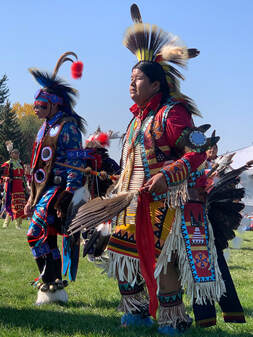 “We are truly humbled,” says Principal Shannon Collier. “This name is just another example of how blessed we are to have the guidance and wisdom of Peter, his wife Jeannie, and all of the Elders who are part of our school community. With our Elders, students and staff, we really are a family and we have so much to be grateful for.” “It was a remarkable day,” notes Superintendent Ken Sampson. “I can’t think of a more perfect name to describe the welcoming and loving daytime home provided for our students by The Children of St. Martha School…it’s very fitting.” This new Blackfoot name will be prominently displayed, reminding all who enter that they are welcome.
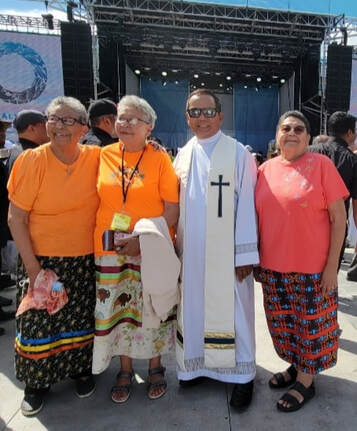 Annie Wesley (second from left) at the Papal Mass Annie Wesley (second from left) at the Papal Mass Pope Francis. Your Holiness, I am an eighty-three-year-old woman, born and raised Roman Catholic Christian from the Swampy Cree Nation. I want to thank you for being with us in our homeland of Canada, to share our pain and our sorrow during this time of finding unmarked graves and reliving the era of the residential school system. You have taken responsibility and humbled yourself by professing shame for the Catholic Church’s treatment of the First Nations in our land. How moving it was to hear you say, “I am deeply sorry. I humbly beg for your forgiveness for the evil committed by many Christians.” There is no other gesture, no other humbler words, nor more sacred than these words, “I am deeply sorry”. Forgiveness is the way to freedom and peace as Jesus, our Lord and Saviour taught us in the “Our Father”, a prayer which says, “...Forgive us our trespasses as we forgive those who trespass against us...” Luke 11:1 Thank you for your powerful words and example of humility and compassion. Dear Pope Francis, you have graced us with your presence. I want to give tribute to the priests and sisters of the past and present who have remained true to their vocation to teach about God’s love for us. We remain grateful for their prayers in sustaining us through the good and difficult times. Their names and deeds remain within our hearts. Many people recall and remember favourite nuns and priests. Stories and memories of them bring loneliness and joy. Many faithful religious have died on our land evangelizing and teaching the Bible. We are blessed to have our own patron saint, St. Kateri Tekakwitha. We have quiet saints around us - grandparents, parents, our wise and faith-filled elders, our relentless leaders who speak and work for our people in Truth and Reconciliation. God bless their enormous work. This historic visit was made possible by their dedication and persistence in seeking the Truth and Reconciliation. Thank you to the Bishops and Priests who organized the liturgical part of the celebration. Thank you for all who supported the Indigenous endeavour in hosting this sacred event. This is the beginning of a new chapter in our story. “I am the way, the truth and the life.” John 14:6. This is also a renewed and continued relationship with the Catholic Church. The crowning of you with the headdress was a significant sign of acceptance of our cultural beliefs and a better understanding of inculturation of our Catholic and native traditions. Your powerful penitential pilgrim speech will remain in my heart, and in all our hearts, in the spirit of mercy, compassion and love. Each person, guided by the Holy Spirit, will find a way to heal. On this first step of my journey, I have wanted to make space for memory. Here, today, I am with you to recall the past, to grieve with you, to bow our heads together in silence and to pray before the graves. Let us allow these moments of silence to help us interiorize our pain. Silence. And prayer. In the face of evil, we pray to the Lord of goodness; in the face of death, we pray to the God of life. Our Lord Jesus Christ took a grave, which seemed the burial place of every hope and dream, leaving behind only sorrow, pain and resignation, and made it a place of rebirth and resurrection, the beginning of a history of new life and universal reconciliation. Our own efforts are not enough to achieve healing and reconciliation: we need God’s grace. We need the quiet and powerful wisdom of the Spirit, the tender love of the Comforter. May he bring to fulfilment the deepest expectations of our hearts. May he guide our steps and enable us to advance together on our journey." With sincere gratitude, Annie Wesley Calgary, Alberta.
Men from the God Squad and several Catholic churches in the Calgary Diocese recently came together to give an old church a facelift in Brocket, Alberta, located on the Piikani Nation between Fort Macleod and Pincher Creek. The work done at St. Paul’s was more than just some exterior painting and repairs. It was also symbolic. Deacon Tom O’Toole, who is assigned to St. Paul’s, said the parish is a community of elders and it doesn’t have all the resources within the Nation to handle some of these bigger projects. “We think it’s an opportunity in the spirit of truth and reconciliation to show the universality of the Church in its beauty and diversity,” said O’Toole, who has been at the parish for about six or seven years. “They did some of the harder work that we were not able to accomplish on our own but we gave them something too. “We paid them with our affection. We fed them. They brought their own food. But we participated in that. And our elders were here. It wasn’t just a simple act of splashing paint on a building. It rolled up into a bigger purpose which is to bring all God’s people together and show the beauty. These people who came from St. Peter’s, I’ve known them for a long time. So I’m not surprised how fantastic they are and a few of them have come to help before so they’re not a stranger here either. That to me is how relationship is built and how truth and reconciliation makes its way around the bases so to speak.” During his ministry as a Deacon, O’Toole has also been assigned in the past to St. Peter’s. Sean Lynn, who spearheads the God Squad organization, said about a dozen volunteers came out in late August to do some work on the aging St. Paul’s building. “It was a great opportunity for us to put into action a love for the Church and reach out to the First Nations’ community showing that we want to work with them, we want to start those conversations, we want to be present in their community. And the Church, it’s a way of reopening the dialogue with them,” explained Lynn. Lynn also wanted to give a big shout out to Dan Lebsack of Cougar Painting, who joined the work crew for the St. Paul’s initiative, offering his professional experience, advice and expertise as well as his painting skills. “They did great work. A great service that we all appreciate. I announced it in the church,” said Rev. Roy Jayamaha, of St. Paul’s. “We really appreciated their great efforts. It was a wonderful thing. They put their heart and soul and work for our community. It was a great thing. “We believe that the door to salvation is always open and so are the doors to our church. Our mission is to be fully devoted to Jesus by opening our arms to those in search of the truth. We show God’s love and concern for our fellow humanity at every opportunity. Through works of charity and opening our doors to listen and love, we feel that we are walking in the footsteps of Jesus Christ.” The God Squad, a Catholic men’s organization, whose vision through the guidance of St. Joseph, is to form and strengthen men, inspiring them to embrace God’s vocation in their lives. Other volunteers included people from St. Peter’s, Holy Spirit and St. James churches in Calgary as well as St. Mary’s in Brooks. Father Roy was originally from Sri Lanka and arrived in the Calgary Diocese in 2014 after having worked as a missionary in Pakistan for 38 years. Bishop Frederick Henry appointed him pastor of St. Paul’s in January 2016. “My prayer for this community is that together we will rediscover the joy of the Gospel, bringing many people back to church by our personal witness. The youth and children are our future and together we must strive to find new ways and means to share God’s love for creation. My faith tells me, it is the work of the Lord we are doing and He will guide our steps forward,” said Father Roy.
I remember the day a girl about my height with jet black hair bounded up my driveway asking to play. I was about five years old and shy. Lori was a high energy, outgoing six-year-old and we quickly became friends. For the next three years we had adventures, playing hide and seek and other childhood pastimes, sometimes getting into mischief together. In upper elementary, I remember finding out that the reason Lori acted differently is because she had fetal alcohol syndrome. But as young children that difference never factored in, in fact, in my eyes she was exciting and fun to be around. Knowing Lori was a gift I received early in my life. I’ve carried the memories we made together with me ever since. And I carried her in my heart as I made the pilgrimage from my home in Calgary to Edmonton for the Papal Mass on July 26, 2022. I prayed for Lori, one of my first best friends, an Indigenous girl who was innocently sentenced to a life clouded by the effects of a preventable syndrome. Lori was adopted and while she never attended residential school, it’s likely someone from her family tree had spent time at one of these schools. To me, her situation is an example from my own lived experience of the repercussions of residential schools felt through the generations. When we arrived at Commonwealth Stadium, the first thing we did was take a family photo to remember our family pilgrimage as we will continue to unpack its significance in the years to come. Next we found our seats, and while waiting for the Papal Mass to begin I noticed four middle-aged women sitting behind me wearing Every Child Matters orange and black t-shirts. Among them was Kelly Spooner who was not herself Indigenous, but came to honour the memory of her uncle (through marriage) who died in 2019 and attended residential school for six years. “I came for strength and to renew my spirit. It’s a part of history today,” said Kelly Spooner. Not long after, the Pope rode around the stadium greeting the crowd. Kelly ran down to the front gate to get a closer look. After he passed by she came back in tears, saying “I’m so happy he’s here.” 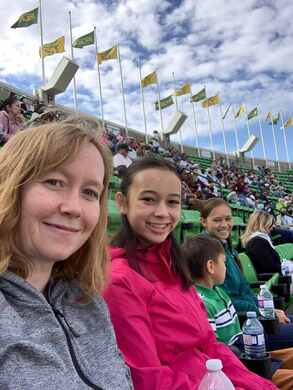 Amber Franco of Calgary with her family Amber Franco of Calgary with her family As the pre-Mass program was wrapping up, emcee Janelle Reinhardt asked the crowd to keep a prayerful silence. “The stadium truly became silent, it was powerful and profound, you could only hear the humming of the buildings. It was impressive in a crowd so large,” said Amber Franco, reflecting on this poignant moment. She drove from Calgary to Edmonton with her husband Mike and seven children. Calgary Bishop William McGrattan also took note of the prayerful atmosphere as he looked up into the crowd from ground level. “When we entered in the procession for Mass and I saw the number of people on the field and in the stands you had this sense of the presence of Christ in those who had gathered to be with the Holy Father,” said Bishop McGrattan. The Papal Mass was celebrated on the feast of St. Joachim and St. Anne – the grandparents of Jesus. Pope Francis used this opportunity to speak about the importance of grandparents and family cohesion during his homily. “This message was simple, but one that everyone could receive and appreciate,” said Bishop McGrattan. “The message of a pastor who himself was advanced in age and not afraid to show the signs of declining mobility, and the need for assistance, which is experienced in every family.” Like any good pilgrimage, there are challenging moments and as we sat in the bleachers listening to Pope Francis our children began to get a bit restless in the blistering heat. I turned my own discomfort into a small offering toward reconciliation, all the while my heart growing in gratitude for the heroic effort of our 85-year-old pontiff. I thought this was a generous gesture toward reconciliation simply by showing up and “taking the heat” with us in every sense of the phrase. But I was also humbled by the elders some 80 years and up who had made the pilgrimage from various parts of the country also suffering their own discomforts in an attempt to heal and move forward. My own father Deacon Richard Loftson accompanied a group of Indigenous pilgrims from Manitoba on behalf of the Archdiocese of St. Boniface. He ministers to the St. Kateri Tekakwitha Indigenous Parish in Winnipeg. “They were thankful for the apology. They were emotional, in tears many of them. They had been waiting for so long,” said Deacon Loftson. Bishop McGrattan also sought feedback as he encountered people affected by residential schools. “In talking to some survivors at the various events, it was difficult for some to hear and relive these memories. For others, there was a sense of recognition that they were listened to by Pope Francis and that his words and actions were genuine in their eyes,” said Bishop McGrattan. Like many things, the future lies with the children in hopes they will learn from history and build a more just and merciful society where no child will ever again suffer the consequences of being forced to leave their family and lose their culture and heritage. 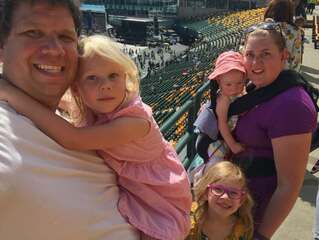 Konrad & Alissa Paley with their daughters Konrad & Alissa Paley with their daughters This is why our friends Alissa and Konrad Paley of Calgary also made the pilgrimage with their three young daughters (six years and under) to the Papal Mass with the same intention as our family: to build a culture of goodwill and reconciliation in their home. “Participating in this particular Papal Mass was really important as a Catholic and a Canadian,” said Alissa Paley. “The Church is made up of the people, we are the people of the Church. In order for the Church to work towards reconciliation we must show up.” “I was honoured to bring my daughters with me. I know that they currently don’t understand the gravity of this event, but I hope as they grow up they may continue to pray for the journey toward reconciliation in this country.” My thoughts have turned toward the child during this pilgrimage. Just like my friend Lori who did nothing to deserve the circumstances she inherited as a child, neither did I deserve the family and opportunities I have been afforded. Everything is a gift. In gratitude, I left Edmonton pondering how I can use the time I have left to seek holiness by laying down my life for my friends. == More photos from our Diocesan families during the Papal Mass (click "all comments")
Canada’s Catholic Bishops welcome today’s announcement from the Holy See providing further details of the itinerary of Pope Francis’ historic visit to Canada, July 24 – 29, 2022. This will be the fourth papal visit to Canada and the first since Saint John Paul II’s journey in 2002. The Holy Father’s pilgrimage will focus on Indigenous healing and reconciliation while also providing the shepherd of the world’s 1.2 billion Catholics an opportunity to encounter the faithful in Canada. Due to his advanced age and limitations, it is expected that participation by Pope Francis at public events will be limited to approximately one hour. General Co-ordinator of the Papal Visit to Canada, Archbishop Richard Smith, remarked on the release of the program: “We know that the Holy Father was deeply moved by his encounter with Indigenous Peoples in Rome earlier this year, and that he hopes to build on the important dialogue that took place. We pray this pilgrimage will serve as another meaningful step in the long journey of healing, reconciliation and hope.” The visit, drawing on the theme of “Walking Together”, will include a combination of public and private events, with an emphasis on Indigenous participation throughout the visit. Ticketing (free) for public events will be announced in the coming days. A volunteer portal can be accessed at papalvisit.ca or visitepapale.ca for those wishing to share their time and talents as part of the historic visit. The papal visit planning team will work closely with Indigenous partners as well as federal, provincial and municipal levels of government to dialogue and co-ordinate the significant logistical challenges associated with a visit of this scope and magnitude. Canadian Conference of Catholic Bishops President, Bishop Raymond Poisson, commented on the efforts: “So many people are working diligently to organize this very busy schedule for the Holy Father and participants. We pray for the health of Pope Francis and also that his pastoral visit to Canada will bring reconciliation and hope to all those who will accompany our shepherd on this historic journey.” Those interested in learning more about the Papal Visit to Canada can find the latest updates at: papalvisit.ca (English) and visitepapale.ca (French). Highlights of the program announced by the Vatican include: July 24, 2022 The Holy Father will arrive in Edmonton, Alberta on July 24th. Following a brief airport ceremony, the 85-year-old pontiff will take the remainder of the day to rest. July 25, 2022 On July 25th, Pope Francis will visit Maskwacis, home to the former Ermineskin Residential School, one of the largest residential school sites in Canada. The Holy Father will join former residential school students from across the country as part of a formal program. Alberta is home to the largest number of former residential schools in Canada. Later in the day, the pontiff will visit Sacred Heart Church of the First Peoples, a National Indigenous church in downtown Edmonton. Following extensive restoration after a devastating fire in 2020, the parish will re-open its doors after using a nearby school the last several years to offer hospitality, spiritual care and supportive outreach programs serving a diverse urban Indigenous community. This will be an invitation-only event. July 26, 2022 July 26th is the feast of St. Anne, grandmother of Jesus, a day of particular reverence for Indigenous Catholics and often the focus of pilgrimage in various parts of the country. In an event that will be open to the public, the Holy Father will celebrate an open-air Mass at Commonwealth Stadium in Edmonton. The facility can accommodate up to 65,000 attendees for a program that will incorporate Indigenous traditions as part of the gathering. In the early evening, the Holy Father will travel to Lac Ste. Anne, the site of an annual pilgrimage that welcomes tens of thousands of Indigenous participants from throughout Canada and the United States each year. Programming will be offered throughout the day leading up to the Holy Father’s participation in a prayer service. July 27, 2022 The Holy Father will depart Edmonton for Quebec City. Upon arrival, the Pontiff will visit La Citadelle, where he will take part in private meetings. Pope Francis, as both a spiritual leader and head of state, will also offer a public address. For events in Quebec City, the public is also invited to participate at a dedicated area on the Plains of Abraham, where there will be opportunities on July 27 and 28 for Indigenous cultural expression as well as the chance to view papal events on large screens. The detailed program of activities on the Plains is being developed with Indigenous and community partners. July 28, 2022 Pope Francis will travel to Sainte-Anne-de-Beaupré, where he will celebrate Mass at one of the oldest and most popular pilgrimage sites in North America, drawing more than a million visitors to the site (including annual Indigenous pilgrimages) each year. Organizers anticipate between 10,000 and 15,000 guests may attend with space for guests both inside and outside the basilica. Later in the day, His Holiness will meet with bishops, priests, seminarians, consecrated men and women as well as those who work in various church ministries, as is customary with most papal visits. The pope will have the remainder of the evening for rest while a dinner focused on friendship and ongoing dialogue will bring together Indigenous leaders from Eastern Canada and representatives of the Catholic Bishops of Canada. July 29, 2022 Following a private meeting with members of his own religious order (Society of Jesus), Pope Francis will meet with Indigenous leaders from Eastern Canada before departing for Iqaluit, where he will spend the afternoon in a private meeting with residential school survivors before attending a public community event hosted by Inuit. The Holy Father will depart for Rome from Iqaluit in the early evening, landing there on the 30th. About the Canadian Conference of Catholic Bishops:
The Canadian Conference of Catholic Bishops (CCCB) is the national assembly of the Bishops of Canada. It was founded in 1943 and officially recognized by the Holy See in 1948. For media inquiries on the Papal Visit to Canada:
Pope Francis will make a pastoral visit to Canada from July 24 to 29, 2022. The Pope’s visit will provide an opportunity for him to listen and dialogue with Indigenous Peoples, to express his heartfelt closeness and to address the impact of residential schools in Canada. The papal visit will also provide an opportunity for the shepherd of the world’s 1.2 billion Catholics to connect with the Catholic community in Canada.
Given the vast landscape of our country, the limited time period for the visit and considering the health of the 85 year-old Pontiff, the Vatican has announced that Pope Francis will adopt three communities as a base for his Canadian visit: Edmonton, Quebec City, and Iqaluit. The locations will limit travel for the Holy Father while still allowing an opportunity for both intimate and public encounters, drawing on participation from all regions of the country. Specific programming and events will be confirmed approximately six weeks prior to the Holy Father’s arrival. Visit www.papalvisit.ca or www.visitepapale.ca for more information and to stay updated on the latest developments. Please continue to pray for the health of Pope Francis and for all those engaged in the ongoing healing and reconciliation journey. Please include these intentions in your prayers:
Read:
Download banners / promo graphics
MEETING WITH REPRESENTATIVES OF INDIGENOUS PEOPLES IN CANADA
ADDRESS OF HIS HOLINESS POPE FRANCIS Clementine Hall, Friday, 1st April 2022 | [Multimedia] Dear brothers and sisters, Good morning and welcome! I thank Bishop Poisson for his kind words and each of you for your presence here and for the prayers that you have offered. I am grateful that you have come to Rome despite the difficulties caused by the pandemic. Over the past few days, I have listened attentively to your testimonies. I have brought them to my thoughts and prayers, and reflected on the stories you told and the situations you described. I thank you for having opened your hearts to me, and for expressing, by means of this visit, your desire for us to journey together. I would like to take up a few of the many things that have struck me. Let me start from a saying that is part of your traditional wisdom. It is not only a turn of phrase but also a way of viewing life: “In every deliberation, we must consider the impact on the seventh generation”. These are wise words, farsighted and the exact opposite of what often happens in our own day, when we run after practical and immediate goals without thinking of the future and generations yet to come. For the ties that connect the elderly and the young are essential. They must be cherished and protected, lest we lose our historical memory and our very identity. Whenever memory and identity are cherished and protected, we become more human. In these days, a beautiful image kept coming up. You compared yourselves to the branches of a tree. Like those branches, you have spread in different directions, you have experienced various times and seasons, and you have been buffeted by powerful winds. Yet you have remained solidly anchored to your roots, which you kept strong. In this way, you have continued to bear fruit, for the branches of a tree grow high only if its roots are deep. I would like to speak of some of those fruits, which deserve to be better known and appreciated. First, your care for the land, which you see not as a resource to be exploited, but as a gift of heaven. For you, the land preserves the memory of your ancestors who rest there; it is a vital setting making it possible to see each individual’s life as part of a greater web of relationships, with the Creator, with the human community, with all living species and with the earth, our common home. All this leads you to seek interior and exterior harmony, to show great love for the family and to possess a lively sense of community. Then too, there are the particular riches of your languages, your cultures, your traditions and your forms of art. These represent a patrimony that belongs not only to you, but to all humanity, for they are expressions of our common humanity. Yet that tree, rich in fruit, has experienced a tragedy that you described to me in these past days: the tragedy of being uprooted. The chain that passed on knowledge and ways of life in union with the land was broken by a colonization that lacked respect for you, tore many of you from your vital milieu and tried to conform you to another mentality. In this way, great harm was done to your identity and your culture, many families were separated, and great numbers of children fell victim to these attempts to impose a uniformity based on the notion that progress occurs through ideological colonization, following programmes devised in offices rather than the desire to respect the life of peoples. This is something that, unfortunately, and at various levels, still happens today: ideological colonization. How many forms of political, ideological and economic colonization still exist in the world, driven by greed and thirst for profit, with little concern for peoples, their histories and traditions, and the common home of creation! Sadly, this colonial mentality remains widespread. Let us help each other, together, to overcome it. Listening to your voices, I was able to enter into and be deeply grieved by the stories of the suffering, hardship, discrimination and various forms of abuse that some of you experienced, particularly in the residential schools. It is chilling to think of determined efforts to instil a sense of inferiority, to rob people of their cultural identity, to sever their roots, and to consider all the personal and social effects that this continues to entail: unresolved traumas that have become intergenerational traumas. All this has made me feel two things very strongly: indignation and shame. Indignation, because it is not right to accept evil and, even worse, to grow accustomed to evil, as if it were an inevitable part of the historical process. No! Without real indignation, without historical memory and without a commitment to learning from past mistakes, problems remain unresolved and keep coming back. We can see this these days in the case of war. The memory of the past must never be sacrificed at the altar of alleged progress. I also feel shame. I have said this to you and now I say it again. I feel shame – sorrow and shame – for the role that a number of Catholics, particularly those with educational responsibilities, have had in all these things that wounded you, in the abuses you suffered and in the lack of respect shown for your identity, your culture and even your spiritual values. All these things are contrary to the Gospel of Jesus Christ. For the deplorable conduct of those members of the Catholic Church, I ask for God's forgiveness and I want to say to you with all my heart: I am very sorry. And I join my brothers, the Canadian bishops, in asking your pardon. Clearly, the content of the faith cannot be transmitted in a way contrary to the faith itself: Jesus taught us to welcome, love, serve and not judge; it is a frightening thing when, precisely in the name of the faith, counter-witness is rendered to the Gospel. Your experiences have made me ponder anew those ever timely questions that the Creator addresses to mankind in the first pages of the Bible. After the first sin, he asks: “Where are you?” (Gen 3:9). Then, a few pages later, he asks another question, inseparable from the first: “Where is your brother?” (Gen 4:9). Where are you? Where is your brother? These are questions we should never stop asking. They are the essential questions raised by our conscience, lest we ever forget that we are here on this earth as guardians of the sacredness of life, and thus guardians of our brothers and sisters, and of all brother peoples. At the same time, I think with gratitude of all those good and decent believers who, in the name of the faith, and with respect, love and kindness, have enriched your history with the Gospel. I think with joy, for example, of the great veneration that many of you have for Saint Anne, the grandmother of Jesus. This year I would like to be with you on those days. Today we need to reestablish the covenant between grandparents and grandchildren, between the elderly and the young, for this is a fundamental prerequisite for the growth of unity in our human family. Dear brothers and sisters, it is my hope that our meetings in these days will point out new paths to be pursued together, instil courage and strength, and lead to greater commitment on the local level. Any truly effective process of healing requires concrete actions. In a fraternal spirit, I encourage the Bishops and the Catholic community to continue taking steps towards the transparent search for truth and to foster healing and reconciliation. These steps are part of a journey that can favour the rediscovery and revitalization of your culture, while helping the Church to grow in love, respect and specific attention to your authentic traditions. I wish to tell you that the Church stands beside you and wants to continue journeying with you. Dialogue is the key to knowledge and sharing, and the Bishops of Canada have clearly stated their commitment to continue advancing together with you on a renewed, constructive, fruitful path, where encounters and shared projects will be of great help. Dear friends, I have been enriched by your words and even more by your testimonies. You have brought here, to Rome, a living sense of your communities. I will be happy to benefit again from meeting you when I visit your native lands, where your families live. I won’t come in the winter! So I will close by saying “Until we meet again” in Canada, where I will be able better to express to you my closeness. In the meantime, I assure you of my prayers, and upon you, your families and your communities I invoke the blessing of the Creator. I don’t want to end without saying a word to you, my brother Bishops: Thank you! Thank you for your courage. The Spirit of the Lord is revealed in humility. Before stories like the one we heard, the humiliation of the Church is fruitfulness. Thank you for your courage. I thank all of you! ______________________ Text courtesy of Libreria Editrice Vaticana A delegation of 32 Indigenous Elders, knowledge keepers, residential school survivors, and youth are meeting with Pope Francis this week (March 28 to April 1). Watch the media briefing and videos below. We will share more on social media as they unfold.
Read / Watch
Photos: ©Vatican Media
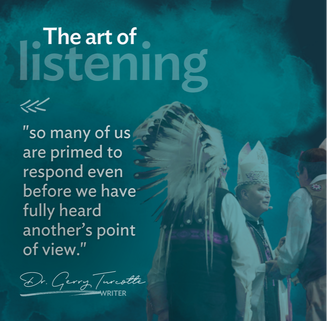 Listening is often referred to as an art — as in the ‘art of listening’. Reams of books have been dedicated to defining ‘how’ to listen, and even define ‘types’— Deep listening, Full listening, Critical Listening, Therapeutic Listening and so forth. Many motivators and healers speak about the difference between hearing and listening, with one comic wisely noting that the biggest mistake by most human beings is that they hear quickly, listen half, understand a quarter and tell double. For some commentators, the real issue is that so many of us are primed to respond even before we have fully heard another’s point of view. We arrive with our minds made up, and it is difficult to hear when we are speaking. This critical fact is a major reason that so much grief continues across so many areas. It is also why many of our institutions are almost systemically structured not to allow the voice of minorities to be heard. Our dominant cultural and political institutions are structured around laws, practices and values defined and developed by those traditionally in power, and so they are often deaf to voices and practices that are not their own. We have seen this most glaringly in recent times in relation to how Governments have worked with First Nations, Métis and Inuit communities, often bringing settler values and solutions to issues, rather than sitting in community with Elders to understand Indigenous points of view. And then Governments feign surprise when agreements aren’t reached. Sr. Helena Burns, in her column A la Carte, makes a good point about how western cultures have always approached Indigenous peoples and notes, ‘It’s of the utmost importance to listen right now. Listen to the Indigenous voices and experiences themselves — silenced for so long. Some of these are horror stories and we must not look away.’ As importantly, she argues that without listening, ‘non-Indigenous today can risk the same old rushing in, do-gooding, problem-solving — simplistically thinking we comprehend situations, and speaking “for” others.’ This reminded me of a similar conversation that was had in Australia when the impact of the missions and the Stolen Generations (equivalent to the Sixties Scoop) dominated the headlines. At the time, the university I was at ran an in-country program where we embedded non-Indigenous students with Indigenous communities. I recall one of my Deans telling me that he’d taken the latest group of students up for their weeklong placement. As always happened, the kids arrived ready to transform the communities and filled with advice; and they were always frustrated when the Elders asked them to sit by the fire and to reflect, with the instruction that they would be called on when the time was right. Instead of learning about the people — and the land that they were on — they wanted to transform them. It was always a humbling experience for our students to gradually understand that reconciliation was more significantly achieved when they found a way to listen first. One incident has always stood out for me. One time my Dean noticed a bright pink building in the Bush where our students had gathered every term. Unfamiliar with this he asked an Elder about it. ‘That’s always been there, but last week a group of Social Workers hired by the Government flew up and painted the building pink to help our men reconnect with their feminine side.’ When my Dean said he hadn’t noticed it before Auntie explained that several months earlier a separate group of Government advisors had flown in to paint the building blue so that Aboriginal men could reconnect with their masculinity. Perplexed, my colleague asked what the building was for. ‘Nothing,’ said Auntie. ‘We built it to keep the white fellas busy so they would stay out of our business. They come up and paint the building and get our signatures and then go back to collect their grants. In the meantime, we focus on serving our community.’ In order to hear the other, we need to stop speaking. The Austrian pianist Alfred Brendel noted that the word Silent contains the same letters as the word Listen. Mother Teresa once said, ‘God speaks in the silence of the heart. Listening is the beginning of prayer.’ True listening is clearly a difficult concept for many of us, but it’s not as though we don’t have a guide to follow. The Gospels show us how Jesus modelled the art of listening. He moved among the masses and heard their cries (Mark 1); he shared water with a Samaritan woman when cultural dictates forbade it (John 4); and of course, he prayed to the Lord, and guided his disciples. Jesus never spoke through formulas, but rather presented parables that reflected the complexities of the situation or teaching he presented. In the familiar, and perhaps overused phrase, he met people where they were. I believe it’s fair to say that people felt heard. And this, in the end, is what we all want, and certainly what we desperately need. Listen; Silent. They are one and the same.
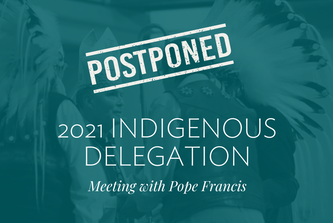 Media updates from CCCB: December 7, 2021 After careful assessment of the uncertainty and potential health risks surrounding international travel amid the recent spread of the Omicron variant, the Canadian Bishops, Assembly of First Nations, Métis National Council, and Inuit Tapiriit Kanatami have jointly decided to reschedule a delegation to the Vatican in December 2021 to the earliest opportunity in 2022. The decision to postpone was a heartbreaking one, made after careful consultation with delegates, family members, community leaders, public health officials and the leadership of each of the three National Indigenous Organizations. Particularly for many elderly delegates as well as those who live in remote communities, the risk of infection and the fluid nature of the evolving global situation presents too great a threat at this time. We take comfort in the desire, conveyed to us by the Holy See, that the safety of the delegation should inform any decision to move forward. It is also important to note that the delegation is postponed not cancelled. Currently, the world’s health experts are still learning about the transmissibility of the Omicron variant. As more information becomes available, we will continue to assess the feasibility of future travel plans, based on guidance from the Canadian government and relevant international authorities. Our shared commitment to walking together towards healing and reconciliation remains strong. We understand that the Holy See is very much committed to rescheduling this visit in the new year and we look forward to the opportunity for Indigenous Elders, knowledge keepers, residential school survivors, and youth to participate in private meetings with Pope Francis. For further information: Canadian Conference of Catholic Bishops – [email protected] Assembly of First Nations – [email protected] Métis National Council – [email protected] Inuit Tapiriit Kanatami – [email protected] Link to Media updates: December 2, 2021 Three Alberta indigenous leaders will be among the delegates traveling to Vatican City this upcoming December to meet with His Holiness Pope Francis as part of national healing and reconciliation efforts. “We as an indigenous community, we never gave up the need to heal,” said Chief Wilton Littlechild, who was chosen as a delegate by the Assembly of First Nations. “We are doing this and we are going. I think that is a willingness on our part …. We are going and that should be a message within itself. We are willing to work with this and with you. Please help us now. We are putting our hand out, meet halfway and let's shake hands. It is really important to show good intent.” Chief Littlechild, of the Ermineskin First Nation, is a former Treaty Six Nations grand chief and former commissioner of the Truth and Reconciliation Commission. Chief Littlechild has worked with the United Nations for more than 40 years advocating for indigenous peoples. He is a survivor of residential school. Two Alberta delegates, Angelina (Angie) Crerar and Gary Gagnon, were chosen by the Metis Nation. Angie is a Métis knowledge keeper and elder, from Grande Prairie. Angie has volunteered for more than 50 years. She has been a board member of the Grande Prairie Friendship Centre. She is president of the Metis Local 1990. She started an Elders Caring Shelter, the first of its kind in the country. She is a survivor of residential school. Gary Gagnon is a Métis from St. Albert (Metis Settlement). For more than 20 years, he has been employed with Edmonton Catholic Schools under the Indigenous Learning Services Program as a cultural facilitator. In 2018, Gary was elected as vice-president, Region 4 Metis Nation of Alberta Twenty five to 30 First Nations, Inuit, and Métis Elders, knowledge keepers, residential school survivors, and youth will meet with the Holy Father at the Vatican from December 17-20, 2021, accompanied by a small group of Canadian bishops. Edmonton Archbishop Richard Smith, president of the Alberta and Northwest Territories bishops, and Calgary Bishop William McGrattan, vice-president of the Canadian Conference of Catholic Bishops, will also travel to Vatican City. The delegates represent the Assembly of First Nations, the Inuit Tapiriit Kanatami (ITK) and the Métis National Council (MNC). Further details of the delegation will continue to be made available through these organizations as well as the Canadian Conference of Catholic Bishops (CCCB). About the Alberta DelegationChief Wilton Littlechild
Wilton Littlechild IPC CM AOE MSC QC, known as Willie Littlechild, is an indigenous lawyer, advocate, residential school survivor and Cree chief who served as Assembly of First Nations Regional Chief, as Grand Chief of the Treaty Six and as a member of Parliament. Littlechild was born in 1944 in Maskwacis, Alberta, raised by his grandparents. He was brought to Indian residential school at the age of six, spending 14 years in the system until his completion of high school. Littlechild graduated with a Bachelor of Physical Education degree in 1967, then obtained a master's degree in physical education from the University of Alberta in 1975. He is the first Treaty Indian from Alberta to obtain a law degree, completed at the University of Alberta in 1976. That year, the Maskwacis Cree Nations bestowed on him with a headdress as an honorary chief and endowed him with his grandfather's Cree name, Mahigan Pimoteyw, which means Wolf Walker. Chief Littlechild was a member of the 1977 Indigenous delegation to the United Nations and worked on the UN and OAS Declarations on the Rights of Indigenous Peoples. He continues to work with the United Nations to this day. He was a Member of Parliament for Wetaskiwin from 1988 to 1993. Chief Littlechild is a member of the Ermineskin Cree Nation. In 2009, Littlechild was appointed as a commissioner to the Truth and Reconciliation Commission of Canada where he served for six and a half years. He has been inducted into Canada's Sports Hall of Fame. He has received the lndspire Award for law and justice, Pearson Peace Medal; four Centennial medals, the Order of Canada, the Order of Sport, three Queen's medals, and received six university doctorate degrees. Chief Littlechild and his wife Helen are most proud of their children Teddi, Neil, Megan, and Angel Tina, three adopted children, nine grandchildren and three great-granddaughters. Gary Gagnon Gary Gagnon is a Metis from St. Albert (Metis Settlement). For more than 20 years Gary has been employed with Edmonton Catholic Schools under the Indigenous Learning Services Program as cultural facilitator. Gagnon was seconded with the Archdiocese of Edmonton as coordinator of the Office of Indigenous relations in 2016 for a two-year term. In 2018, Gary was elected as vice-president, Region 4 Metis Nation of Alberta. Gagnon is a trustee for Lac Ste. Anne Pilgrimage. He sits as an Indigenous Advisor the Canadian Catholic Indigenous Council. He performs prayer and smudging rituals as Indigenous cultural volunteer with Sacred Heart of First Nations Peoples church in Edmonton and Our Lady of Mercy Parish in Enoch. Angie Crerar Angie (Mercredi) Crerar IS 85. She was born July 3, 1936 in Fort Resolution, NWT. In 1947, she was taken from her home and placed in residential school at Fort Resolution. For over 10 years, her Metis traditions, language, heritage, childhood and name were taken from her. She was known as number 6. Angie left the residential School when she was 17 years old. She and her late husband Doug Crerar have 11 children, 24 grandchildren, and 16 great grandchildren. Angie has volunteered for more than 50 years, celebrating her Metis heritage. She has been a board member of the Grande Prairie Friendship Centre. She is president of the Metis Local 1990. She started, fundraised and helped build an Elders Caring Shelter, the first of its kind in the country. In 1987, Angie was named Volunteer of the Year. She received a Lifetime Achievement Award from the Esquao Awards, the Centennial Award from the City of Grande Prairie, a Caring Canadian award from the Governor General, Hometown Hero award from the City of Grande Prairie and the Queens Diamond Jubilee Medal. In 2014, she was awarded with a city park in her name, called the Angie Crerar Park. Edmonton Archbishop Richard Smith Richard W. Smith was born in Halifax, Nova Scotia on April 28, 1959. He studied at St. Mary's University and at the Atlantic School of Theology in Halifax. Ordained to the priesthood on May 23, 1987, he pursued further studies in theology at the Pontifical Gregorian University in Rome, earning a licence in 1993 and a doctorate in 1998. Pope John Paul II appointed him as Bishop of Pembroke, Ont. on April 27, 2002. He was formally installed as the seventh Archbishop of Edmonton on May 1, 2007, the Feast Day of St. Joseph the Worker. Archbishop Smith serves as president of the Catholic Bishops of Alberta and the Northwest Territories, and he is past president of the Canadian Conference of Catholic Bishops. Calgary Bishop William McGrattan William Terrence McGrattan was born on September 19, 1956 in London, Ont. He received his undergraduate degree in chemical engineering at the University of Western Ontario, followed by a Master of Divinity from St. Peter’s Seminary in London. He was ordained to the priesthood on May 2, 1987. Bishop McGrattan continued his studies in theology at the Pontifical Gregorian University in Rome, where he received a licentiate in fundamental moral theology in 1992. He served on the faculty of St. Peter’s Seminary in London from 1997 until 2009. In 2009, Pope Emeritus Benedict XVI appointed Bishop McGrattan as Auxiliary Bishop of Toronto. His appointment as the 12th bishop of the Diocese of Peterborough, Ont, took place on April 8, 2014. On January 4, 2017, Bishop McGrattan was appointed eighth bishop of the Diocese of Calgary, and was installed on February 27, 2017. Bishop McGrattan is the vice-president of the Canadian Conference of Catholic Bishops. "My hope at sharing some personal reflections from the perspective of being both a Catholic Priest and man of Indigenous heritage. In honour of the national day in recognition of Truth and Reconciliation, September 30, 2021." 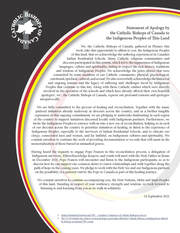 The Catholic Bishops of Canada, gathered in Plenary this week, took the opportunity to affirm and acknowledge to the Indigenous Peoples the suffering experienced in Canada’s Indian Residential Schools. Many Catholic religious communities and dioceses participated in this system, which led to the suppression of Indigenous languages, culture and spirituality, failing to respect the rich history, traditions and wisdom of Indigenous Peoples. They acknowledged the grave abuses that were committed by some members of our Catholic community; physical, psychological, emotional, spiritual, cultural, and sexual. They also sorrowfully acknowledged the historical and ongoing trauma and the legacy of suffering and challenges faced by Indigenous Peoples that continue to this day. Along with those Catholic entities which were directly involved in the operation of the schools and which have already offered their own heartfelt apologies, the Catholic Bishops of Canada expressed their profound remorse and apologized unequivocally. Together with the many pastoral initiatives already underway in dioceses across the country, the Bishops pledged to undertake fundraising in each region of the country to support initiatives discerned locally with Indigenous partners. Furthermore, they invited the Indigenous Peoples to journey with us into a new era of reconciliation, helping us to prioritize initiatives of healing, to listen to the experience of Indigenous Peoples, especially to the survivors of Indian Residential Schools, and to educate our clergy, consecrated men and women, and lay faithful, on Indigenous cultures and spirituality. They further committed to continue the work of providing documentation or records that will assist in the memorialization of those buried in unmarked graves. A delegation of Indigenous survivors, Elders/knowledge keepers, and youth will meet with the Holy Father in December 2021. Pope Francis will encounter and listen to the Indigenous Peoples, so as to discern how he can support our common desire to renew relationships and walk together along the path of hope in the coming years. The Bishops of Canada have pledged to work with the Holy See and our Indigenous partners on the possibility of a pastoral visit by the Pope to Canada as part of this healing journey. We are committed to continue the journey with the First Nations, Métis and Inuit Peoples of this land. 24 September 2021 27 September 2021
The Bishops of Canada, as a tangible expression of their commitment to walk with the Indigenous Peoples of this land along the pathway of hope, are making a nation-wide collective financial commitment to support healing and reconciliation initiatives for residential school survivors, their families, and their communities. With a target of $30 million over up to 5 years, this will include initiatives in every region of the country. The commitment will be achieved at the local level, with parishes across Canada being encourage to participate and amplify the effort. As we were adjusting to the difficulties of the past eighteen months something more ominous and seemingly out of nowhere, punched us in the gut as members of the Canadian Catholic Church. Ground penetrating radar studies around abandoned Indian Residential Schools had found grave sites, first at Kamloops. Common immediate responses I heard among my fellow parishioners were feelings of puzzlement, shock, and anger and expressions of general ignorance of the issue. Here was our Church, standing shamed before the Canadian public and the world, as the continuing pain and suffering of indigenous people stood revealed. We are now challenged by these events to examine our own, and our Church’s, position in society. We might be ‘settlers’ of recent or many generations’ standing. Some of us are indigenous, and for many, perhaps most, our backgrounds are complicated. Whatever our situation we can no longer ignore questions this poses about our faith, Church, and our pasts. I had attended the Calgary hearings of the Truth and Reconciliation Commission (TRC) in November 2013. I had witnessed the grueling and painful testimonies of those affected by the Residential Schools and its related intergenerational trauma, and I had stood in the lunch line listening to Commission Chair Murray Sinclair, whom I greatly admired. I have done post-graduate studies in the fields of imperial and colonial history and I had read some of the final reports published by the TRC. Still, the news out of Kamloops, and the eruption of emotion that followed came as a shock. Partly it was the way the reports came out. I had understood the events to be historical and not as enduring injustices needing resolution. My first visit to the church of Holy Trinity on the Siksika Nation was in July when I met with the pastor, Fr. Long Vu, to discuss what historical records Holy Trinity had that were related to the community, and to let him know what was held by the Diocese. We have no Residential School records as the Diocese was not involved in operating the schools, but we were keen to know if there was anything which we could share that would fill in gaps in the existing information. Seeing the Nation for the first time reveals the stark beauty of the grasslands and the dramatic sweep of the Bow River valley as it meanders through its wide plain. I was pleased to be back again this week to attend a meeting of Bishop McGrattan and Chief Ouray Crowfoot with Council members and a diocesan team to see if we could establish some concrete ways of moving forward together. It was a good meeting. What struck me most was the graciousness and patience of the Siksika representatives, their quiet humour and commitment to get things done on the journey towards healing. Looking out over the river valley where Treaty Seven was signed almost 150 years ago it is easy to imagine the gatherings that occurred there, and to feel the tangible presence of history. A mile or so distant, Crowfoot Residential School site, which is overlooked now by Holy Trinity Church, was demolished some years ago though its outline and footprint can still be seen. It has its own historical presence which asks to be acknowledged. Inside the Blackfoot Crossing Historical Park there is so much to see and I would recommend you visit. What seemed to me most poignant was the space being created for the historical artifacts that once belonged to Chief Crowfoot (1930-1890), an original signatory of the Treaty, which are currently awaiting repatriation from a museum in Exeter in the United Kingdom. This is a sign of hope for the Nation – and of the erosion of the old power of colonialism. Over these places, and in all of us who met together, I felt the spirit of God asking us to stay with the suffering and to work hard together and attempt to mitigate the ill effects of the Residential Schools. We cannot change history but here is an invitation we cannot ignore. We can seek the truths and lessons of our history by studying reliable authorities, records, the oral testimonies of elders and through honest, prayerful reflection. We are obliged by our God to do so. The past is not past – it is with us. But God is with us too.
Dear Sisters and Brothers in Christ, The reported discovery of the remains of 215 children at the former Kamloops Indian residential school has shocked the consciousness of our country, its people, the Church, and the world to the painful and dark reality of our Canadian Indian residential school system. This has also surfaced once again the suffering and trauma which continues to mark the lives of our indigenous brothers and sisters and their communities. On behalf of the people of the Diocese of Calgary, I personally share in this devastating sorrow and express my deepest regret at the loss of the lives of these children and the enduring pain which residential schools have caused within our indigenous communities. In solidarity, we must act in the pursuit of justice, reconciliation, and true healing. As the Bishop of Calgary, through this statement, I personally recommit the Diocese in expressing the apology and regret made by the Bishops of Alberta and the Northwest Territories in 2014 to our indigenous brothers and sisters. We, the Catholic Bishops of Alberta and Northwest Territories, apologize to those who experienced sexual and physical abuse in Residential Schools under Catholic administration. The picture and images of children’s shoes placed at the front steps with lit candles remind us of the voices of these children and the need for restorative justice. In prayer, we unite ourselves with our suffering brothers and sisters so that the Spirit will show us the path of solidarity in promoting true justice and healing. For those families deeply impacted, we ask for the intercession of St. Kateri Tekakwitha for them to receive consolation, healing, and strength. Sincerely Yours in Christ, +William T. McGrattan Bishop of Calgary June 4, 2021
Dear Sisters and Brothers in Christ, The reported discovery of the remains of 215 children at the former Kamloops Indian residential school has shocked the consciousness of our country, its people, the Church, and the world to the painful and dark reality of our Canadian Indian residential school system. This has also surfaced once again the suffering and trauma which continues to mark the lives of our indigenous brothers and sisters and their communities. On behalf of the people of the Diocese of Calgary, I personally share in this devastating sorrow and express my deepest regret at the loss of the lives of these children and the enduring pain which residential schools have caused within our indigenous communities. In solidarity, we must act in the pursuit of justice, reconciliation, and true healing. As the Bishop of Calgary, through this statement, I personally recommit the Diocese in expressing the apology and regret made by the Bishops of Alberta and the Northwest Territories in 2014 to our indigenous brothers and sisters. We, the Catholic Bishops of Alberta and Northwest Territories, apologize to those who experienced sexual and physical abuse in Residential Schools under Catholic administration. The picture and images of children’s shoes placed at the front steps with lit candles remind us of the voices of these children and the need for restorative justice. In prayer, we unite ourselves with our suffering brothers and sisters so that the Spirit will show us the path of solidarity in promoting true justice and healing. For those families deeply impacted, we ask for the intercession of St. Kateri Tekakwitha for them to receive consolation, healing, and strength. Sincerely Yours in Christ, +William T. McGrattan Bishop of Calgary
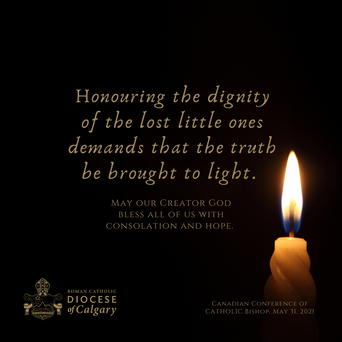 Statement from the Canadian Conference of Catholic Bishops following the recent discovery at the former Kamloops Indian Residential School on the Tk’emlúps te Secwépemc First Nation On behalf of the Canadian Conference of Catholic Bishops (CCCB), I express our deepest sorrow for the heartrending loss of the children at the former Kamloops Indian Residential School on the Tk’emlúps te Secwépemc First Nation. The news of the recent discovery is shocking. It rekindles trauma in numerous communities across this land. Honouring the dignity of the lost little ones demands that the truth be brought to light. This tragedy profoundly impacts Indigenous communities, with whom many people across this land and throughout the world now stand in solidarity. As we see ever more clearly the pain and suffering of the past, the Bishops of Canada pledge to continue walking side by side with Indigenous Peoples in the present, seeking greater healing and reconciliation for the future. We lift up prayers to the Lord for the children who have lost their lives and pledge our close accompaniment of Indigenous families and communities. May our Creator God bless all of us with consolation and hope. + Richard Gagnon Archbishop of Winnipeg and President of the Canadian Conference of Catholic Bishops, 31 May 2021
Written by Bishop William T. McGrattan | December 5, 2019
|
Author
Catholic Pastoral Centre Staff and Guest Writers Archives
July 2024
Categories
All
|

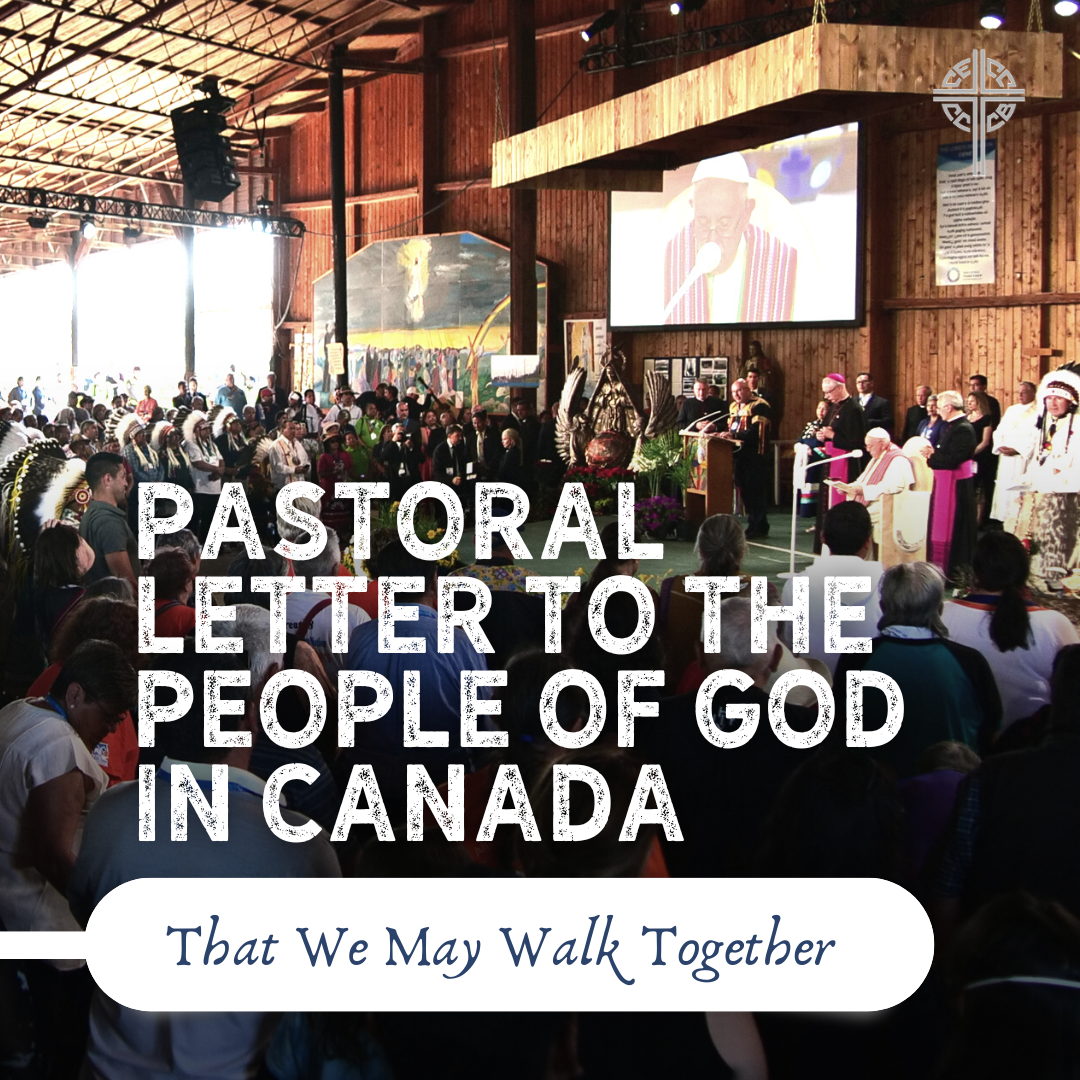
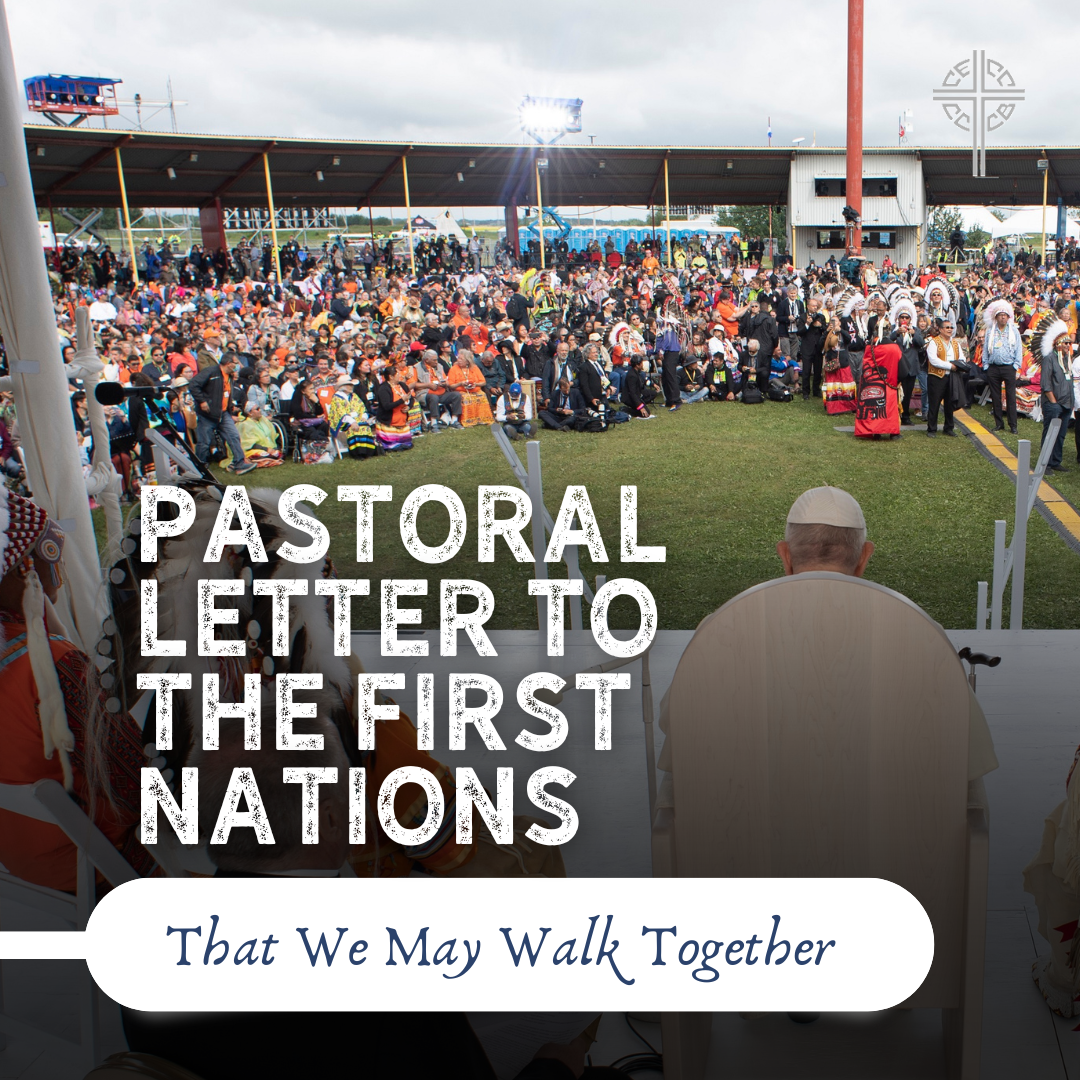
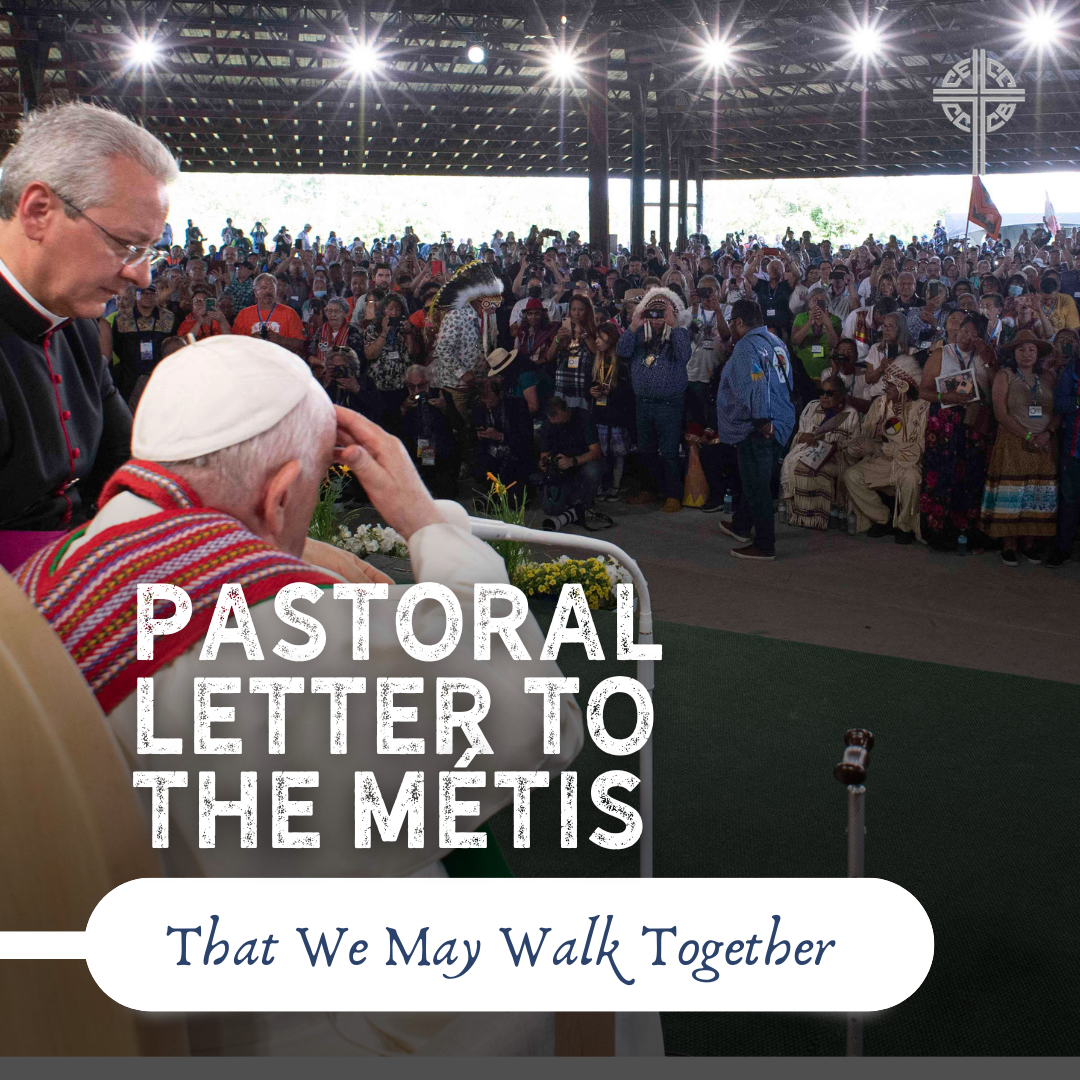
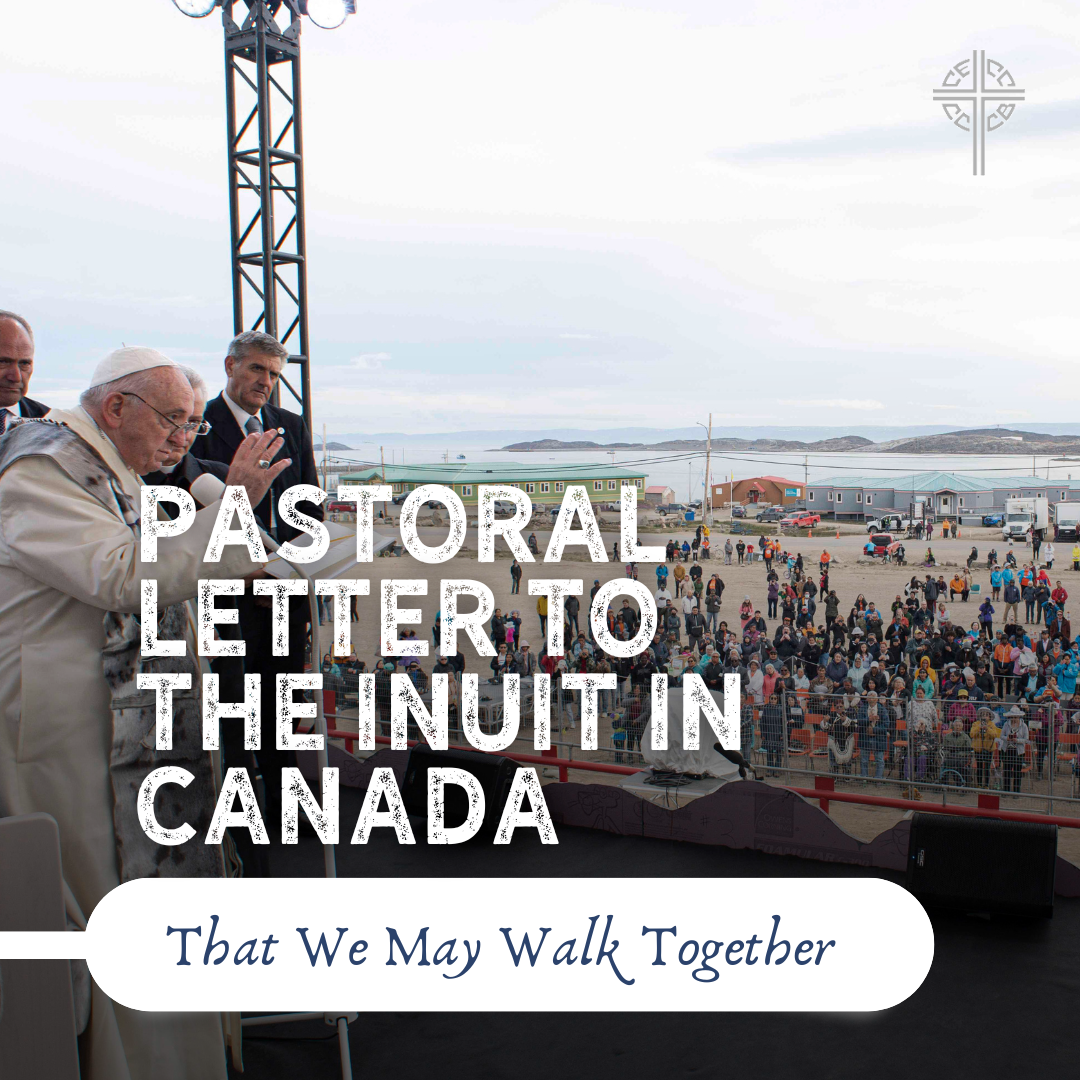
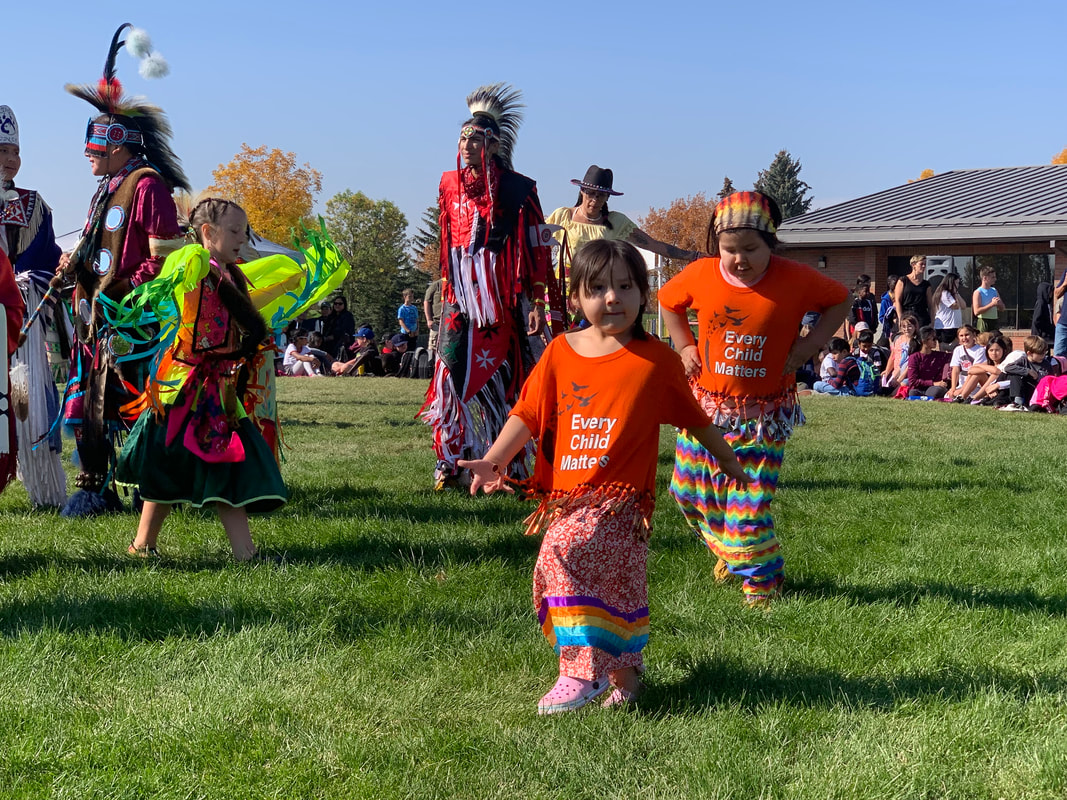
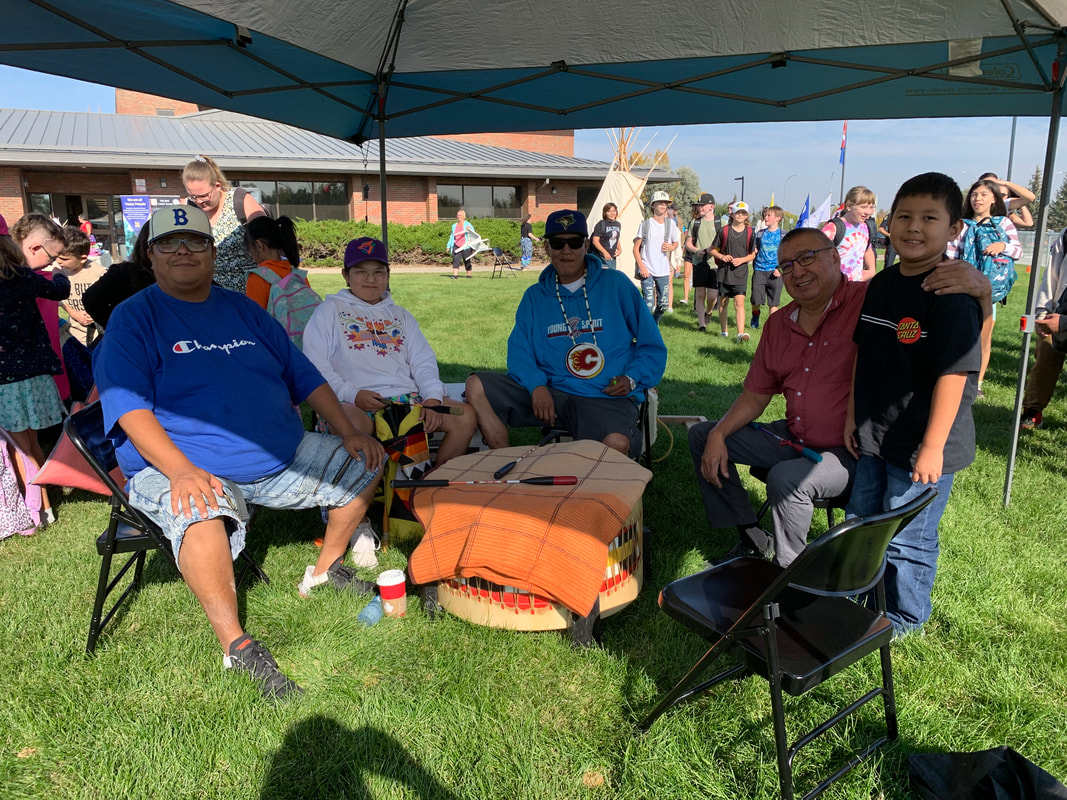
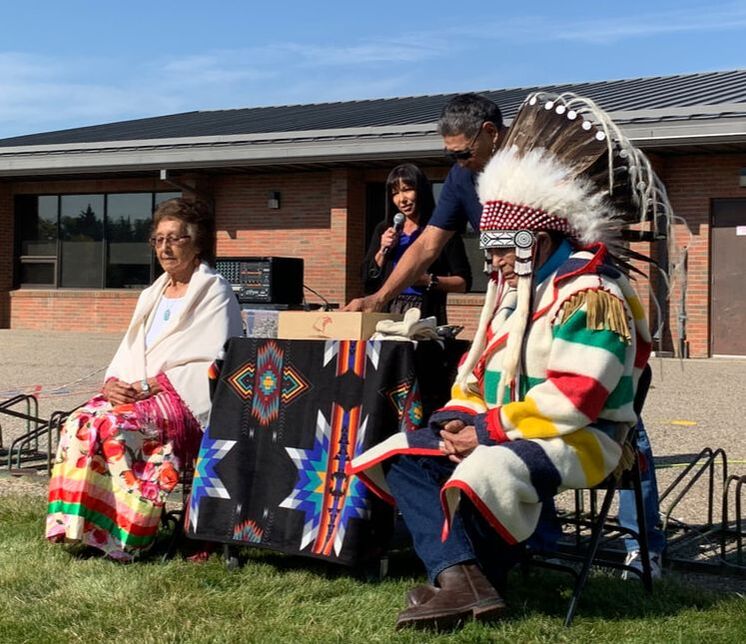

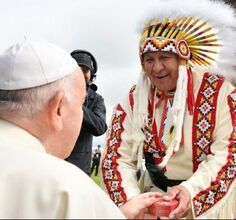
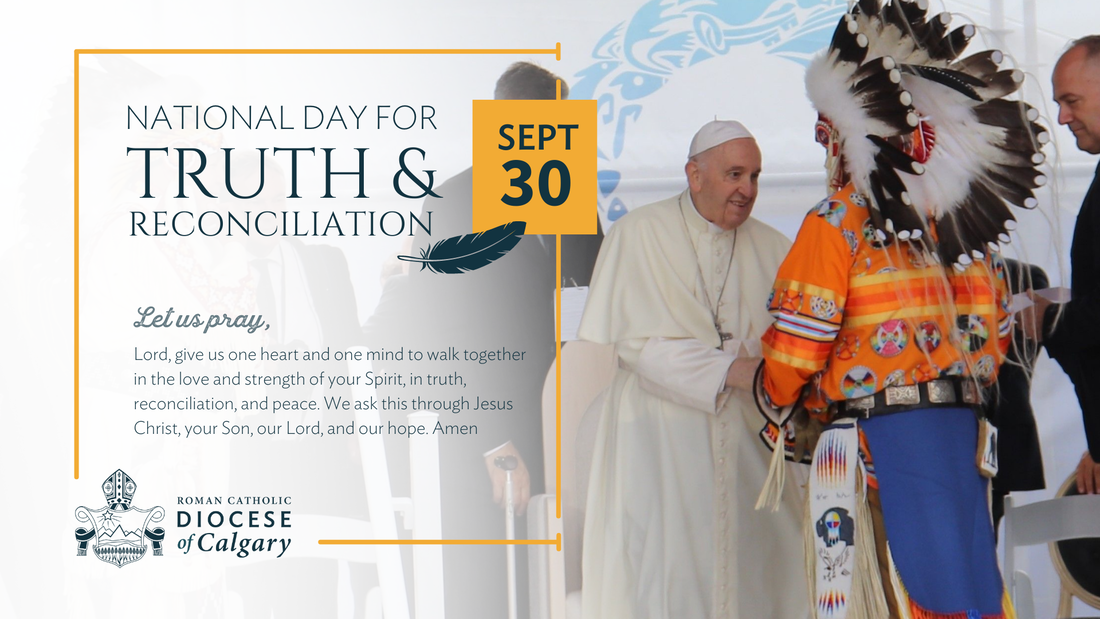
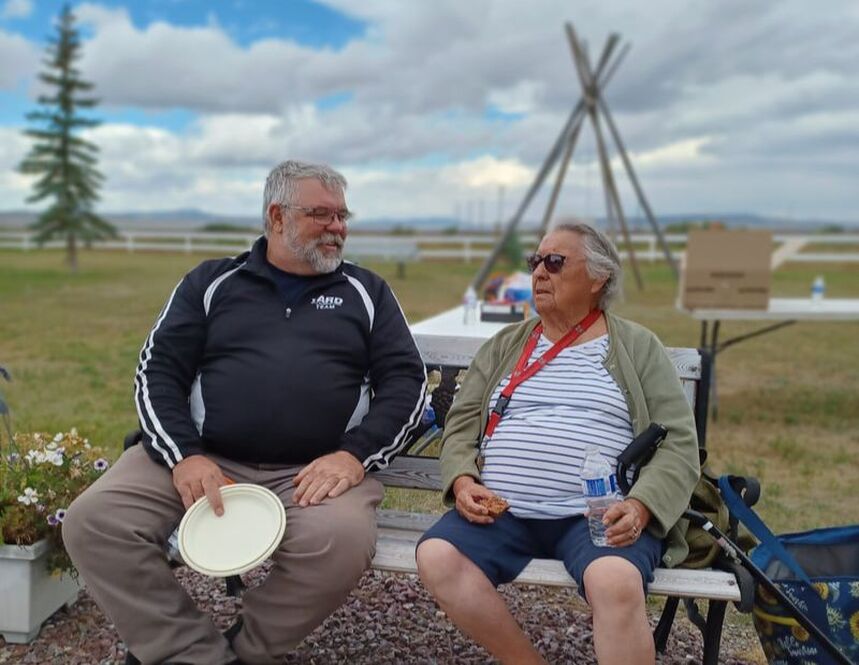
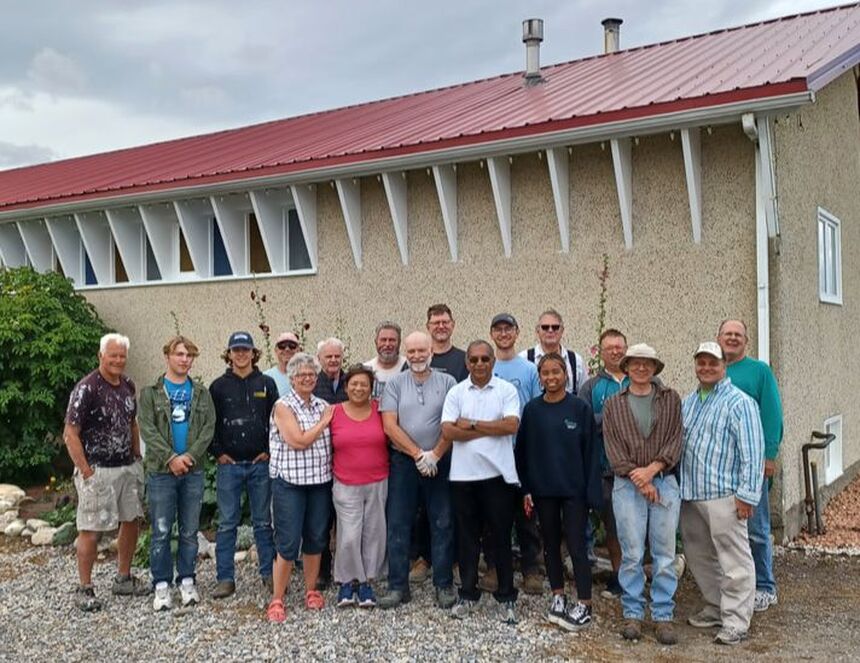
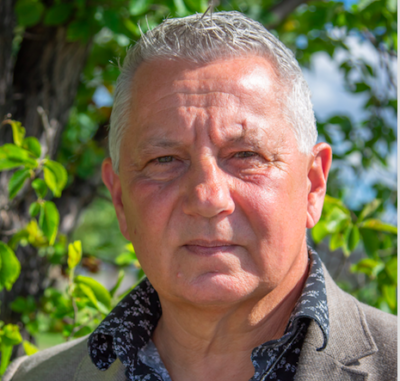
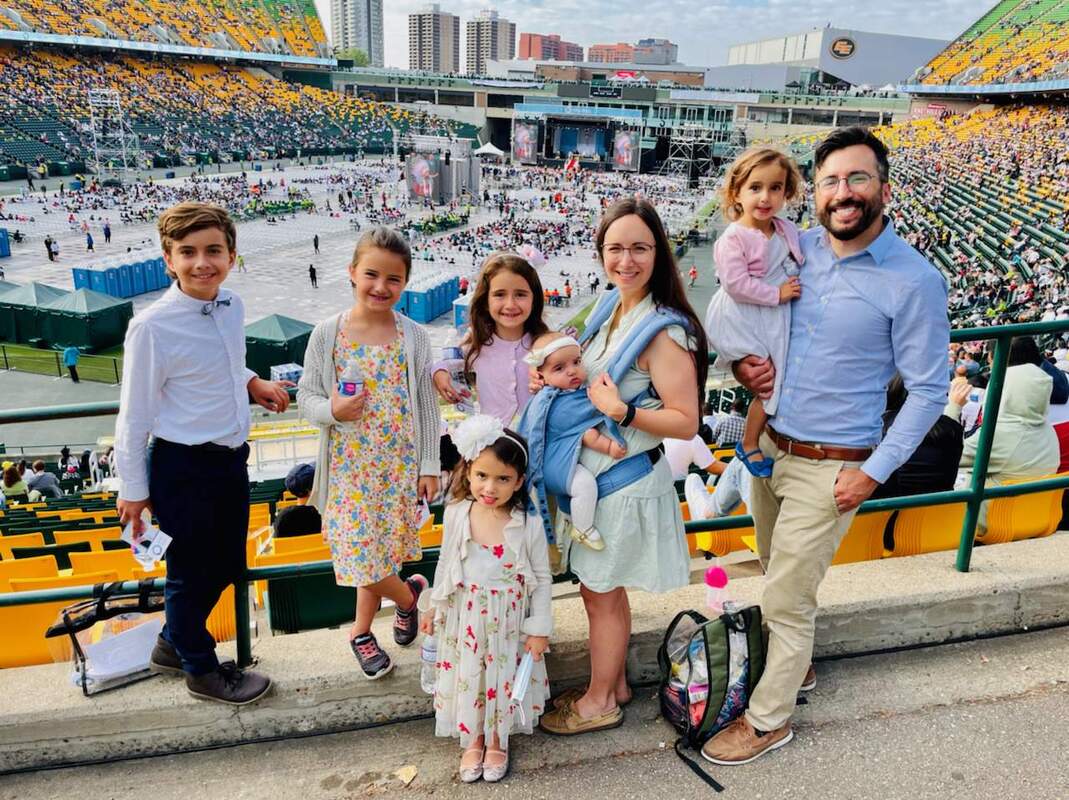
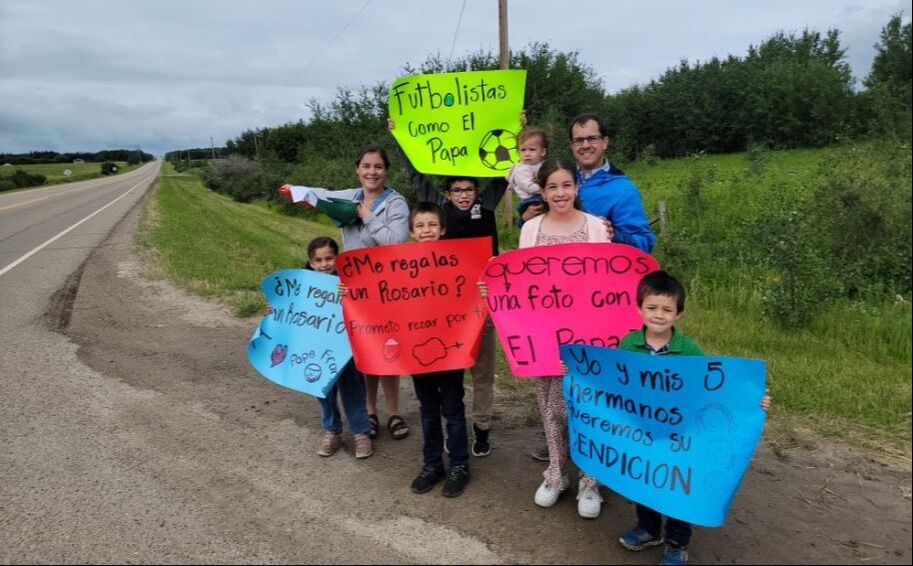
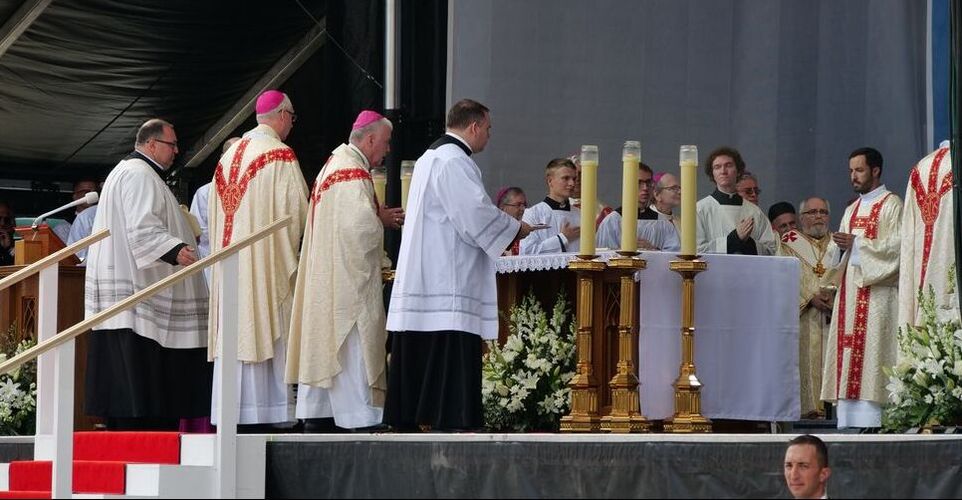
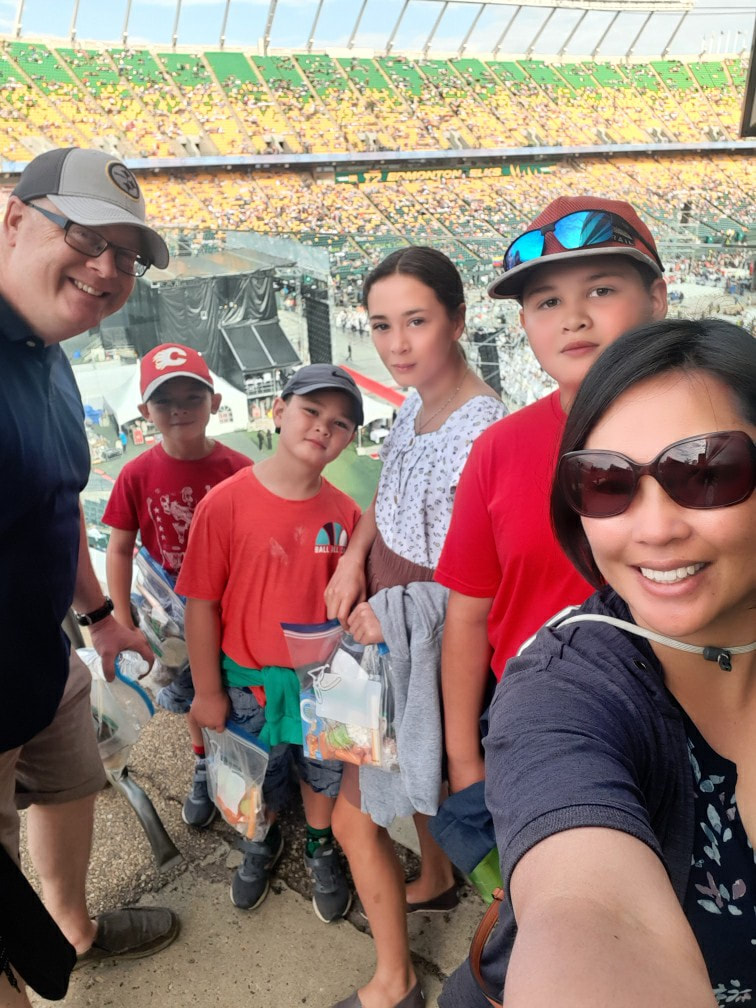
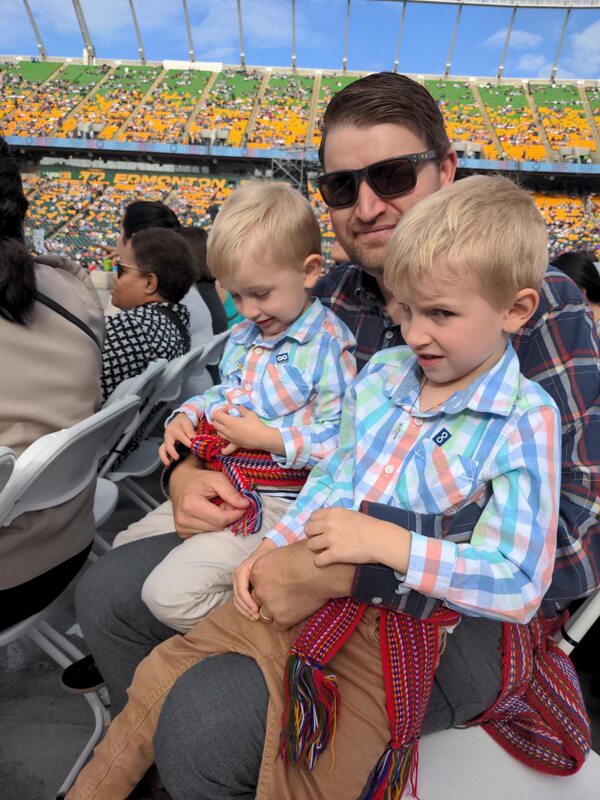
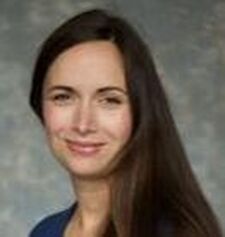
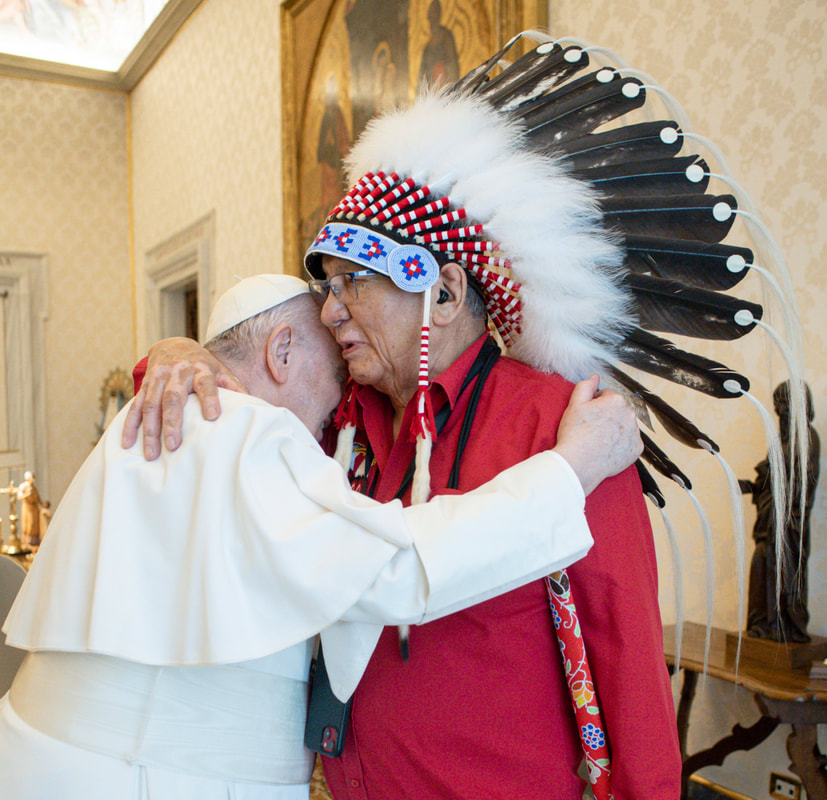
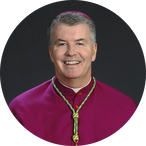

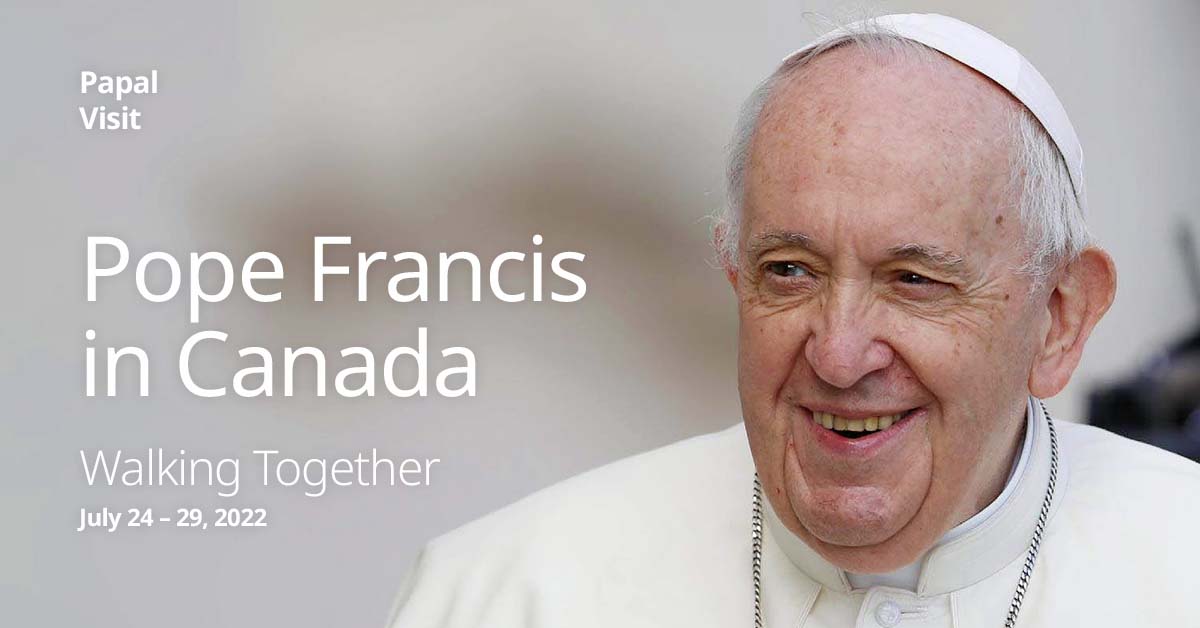
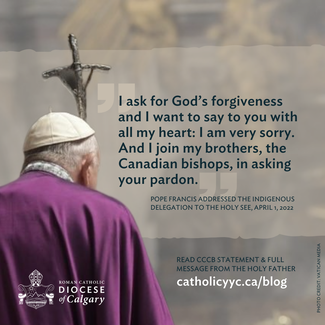
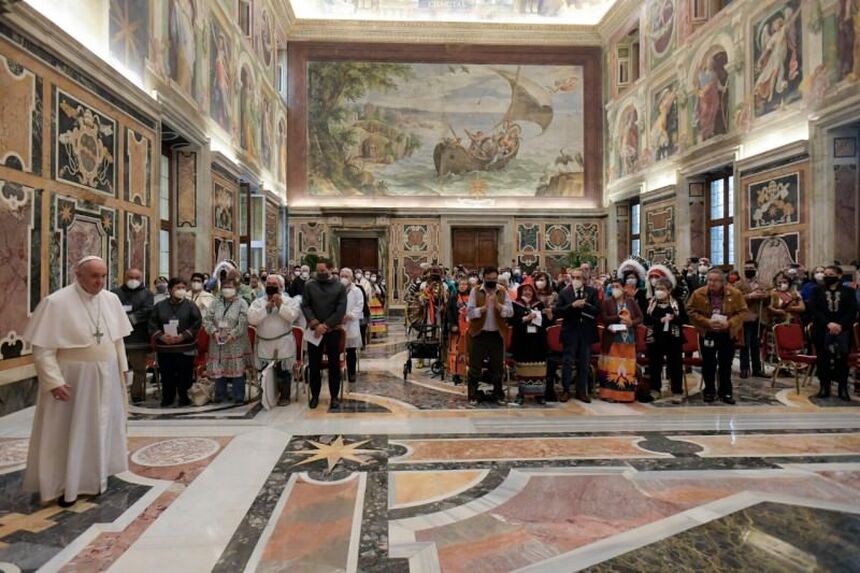
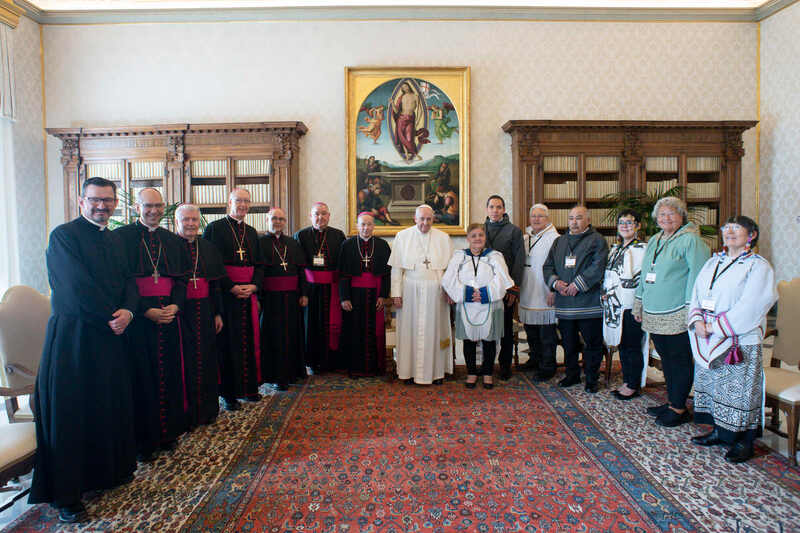
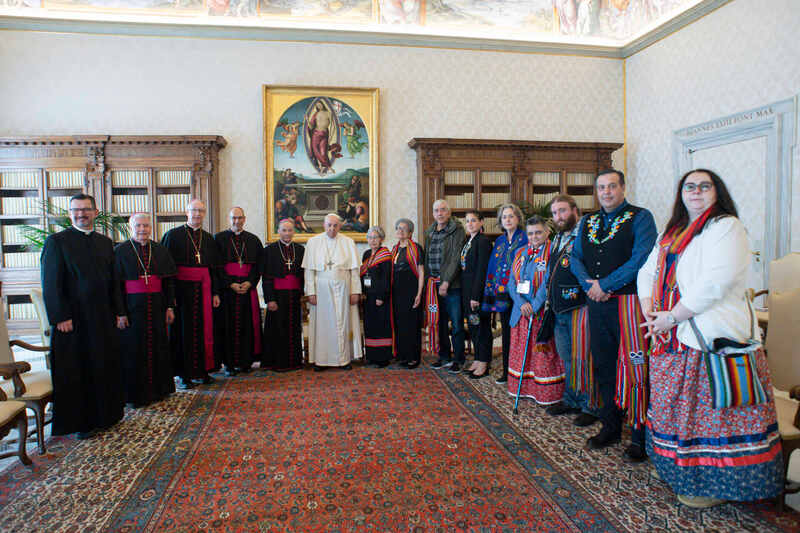
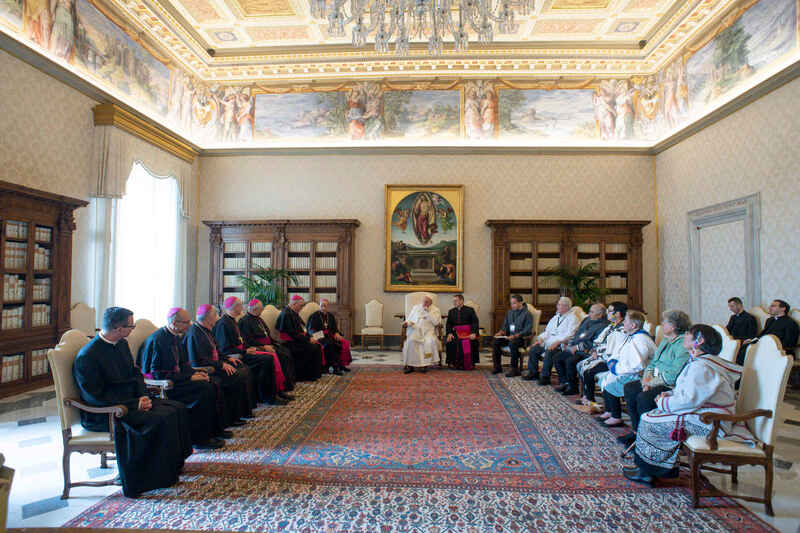
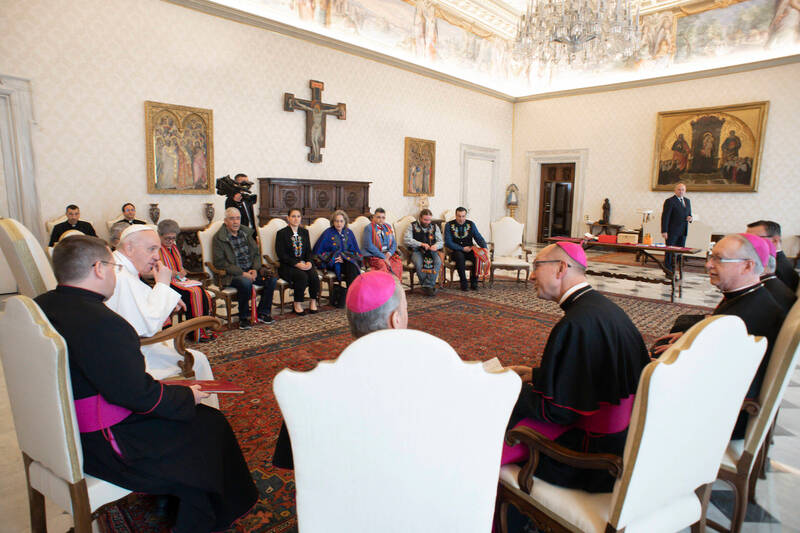
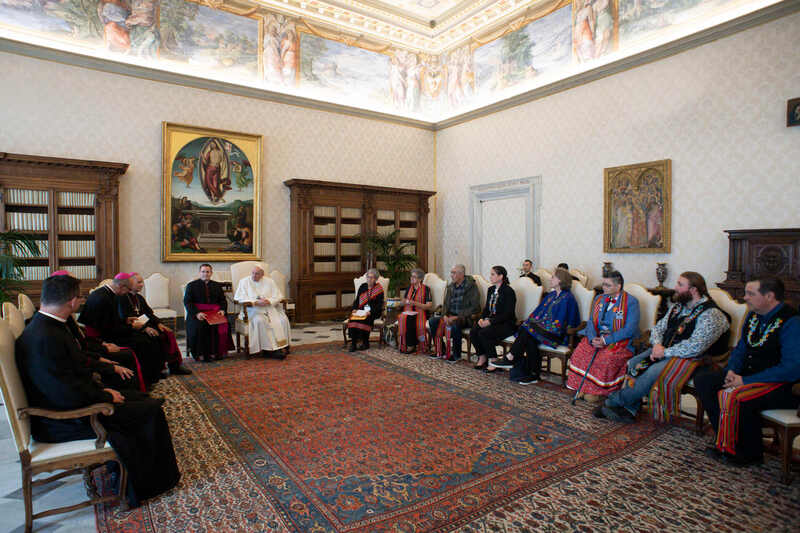
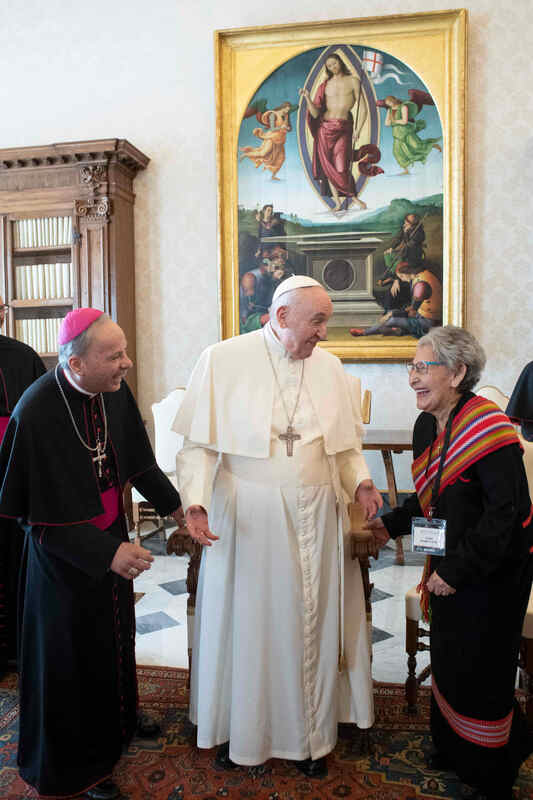
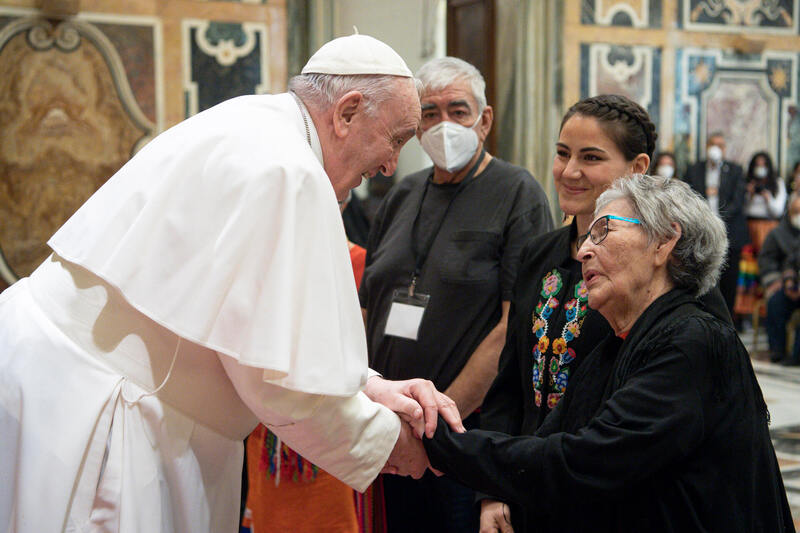
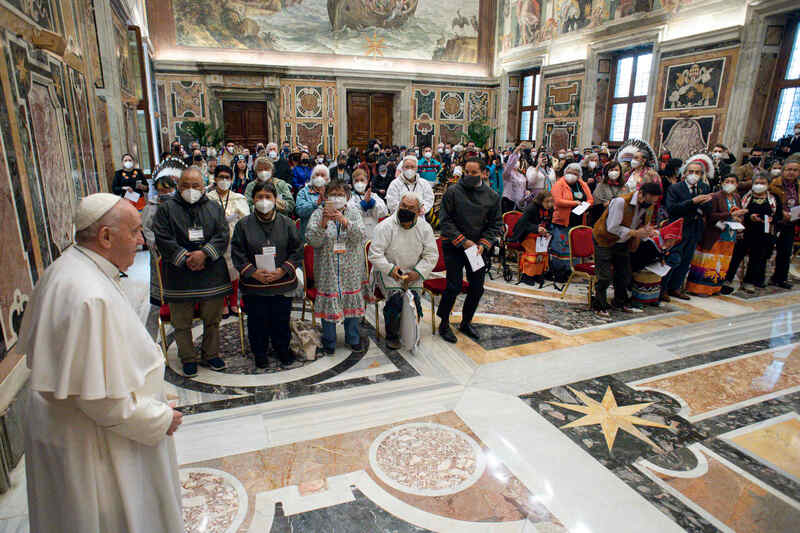
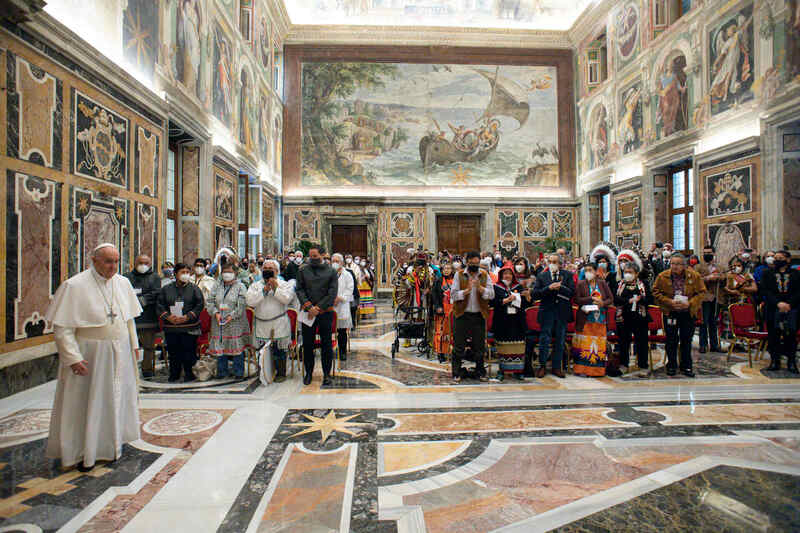
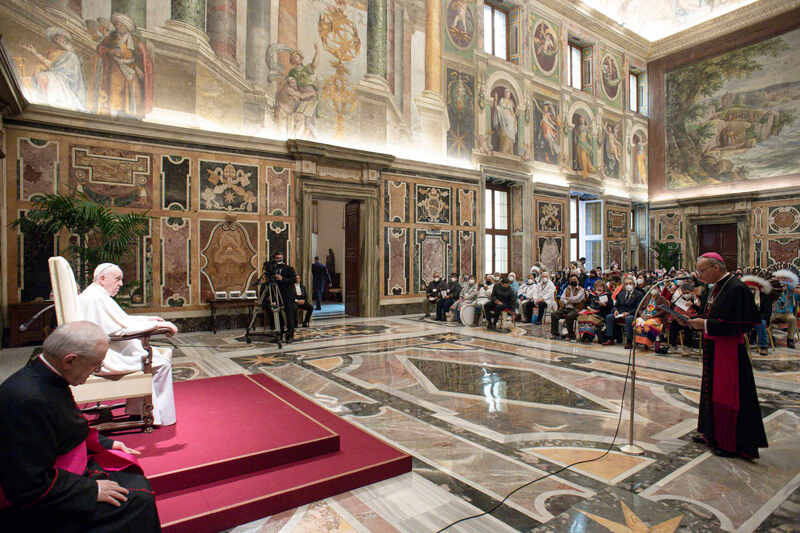
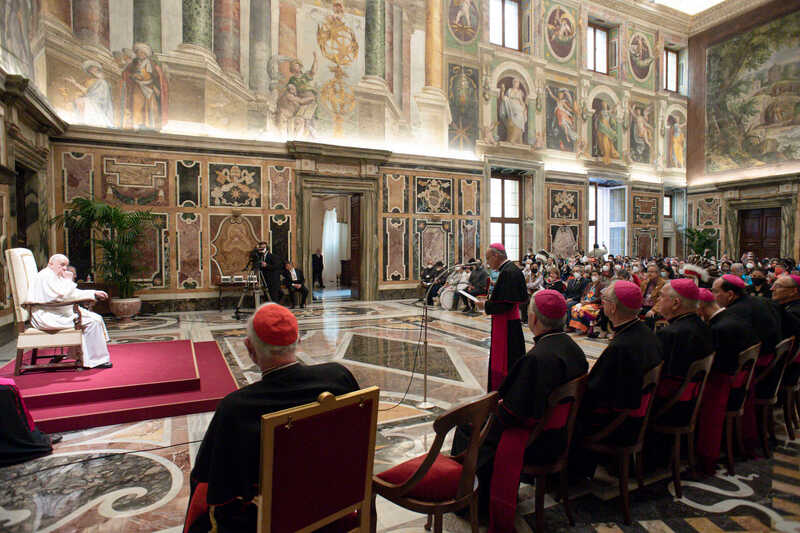
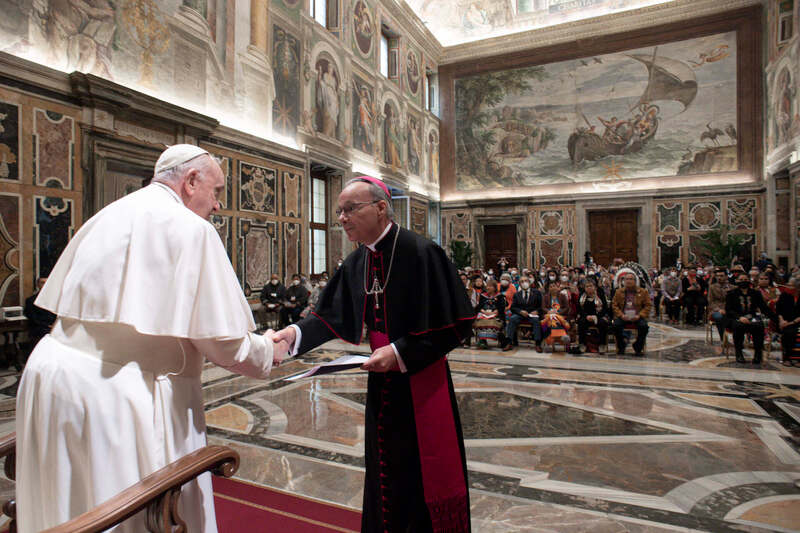
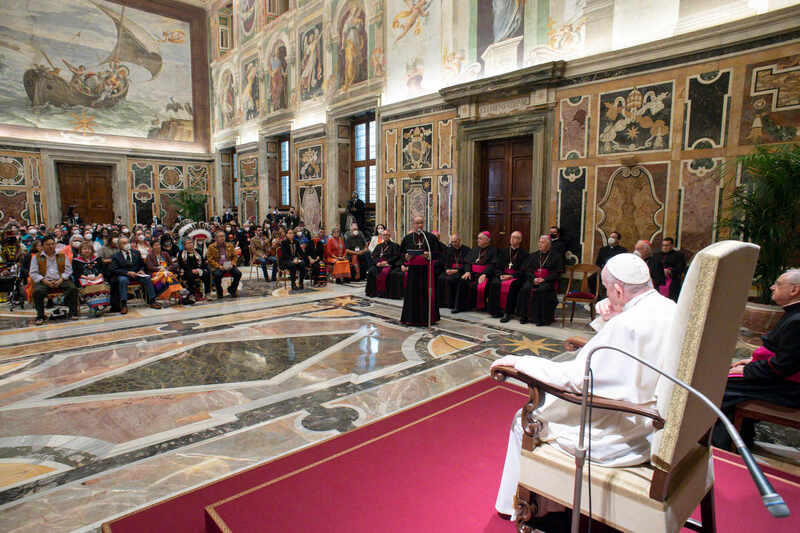
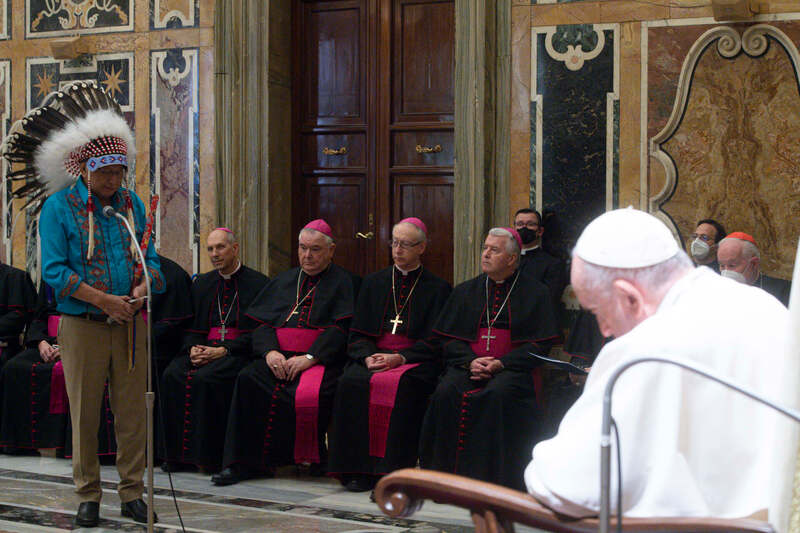
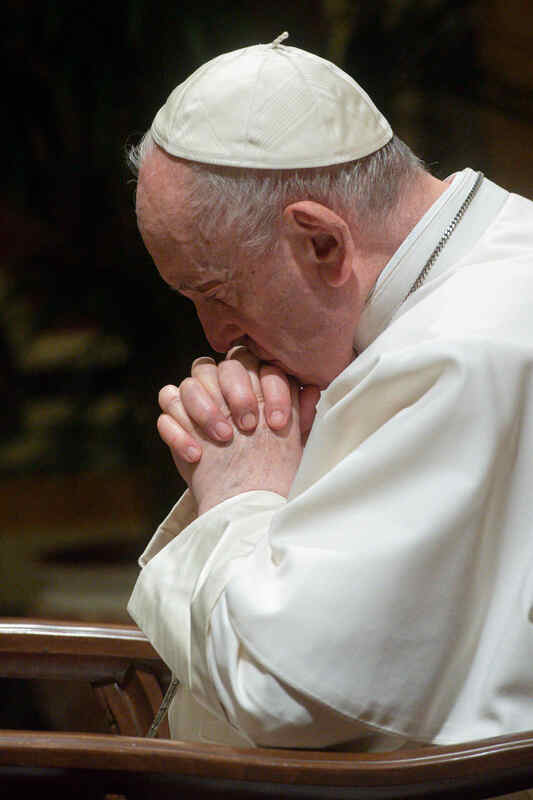
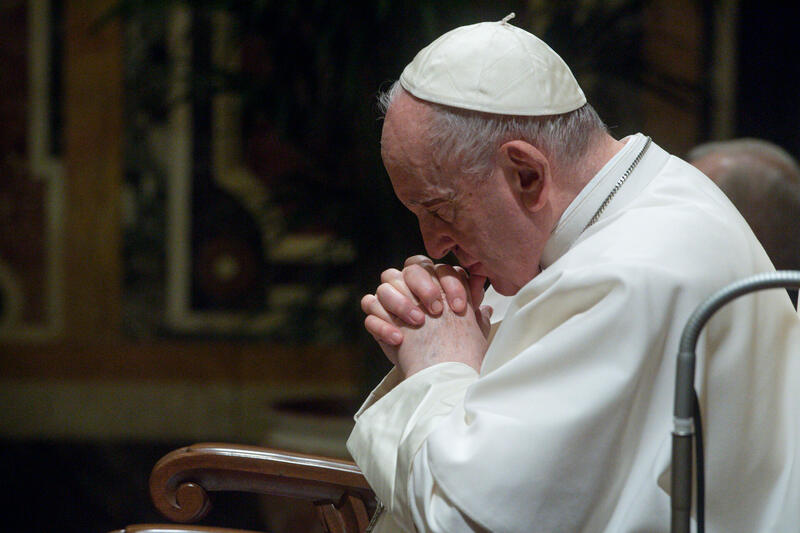
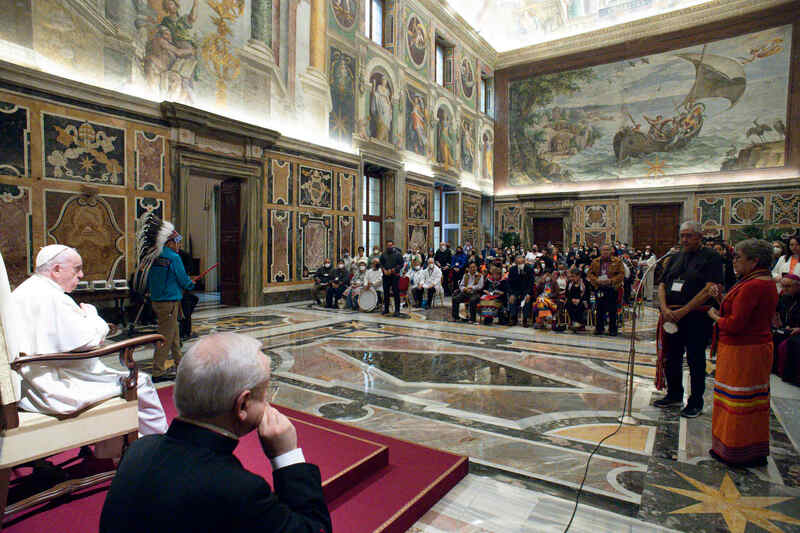
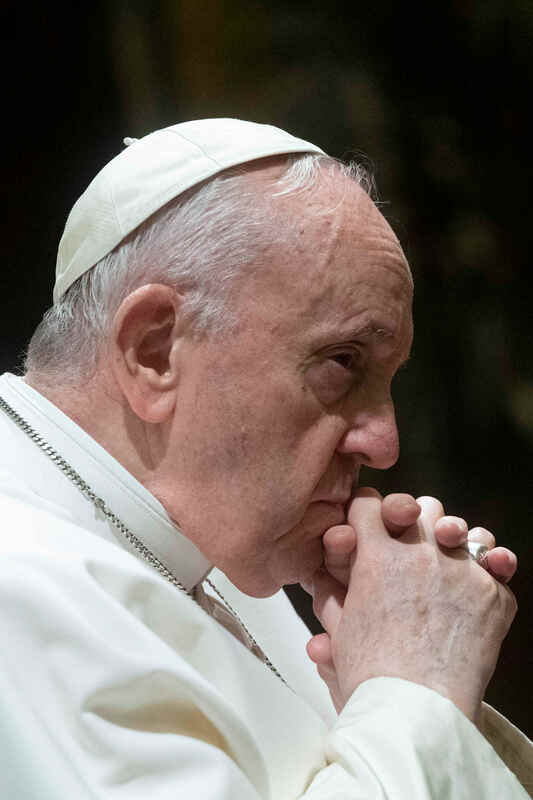
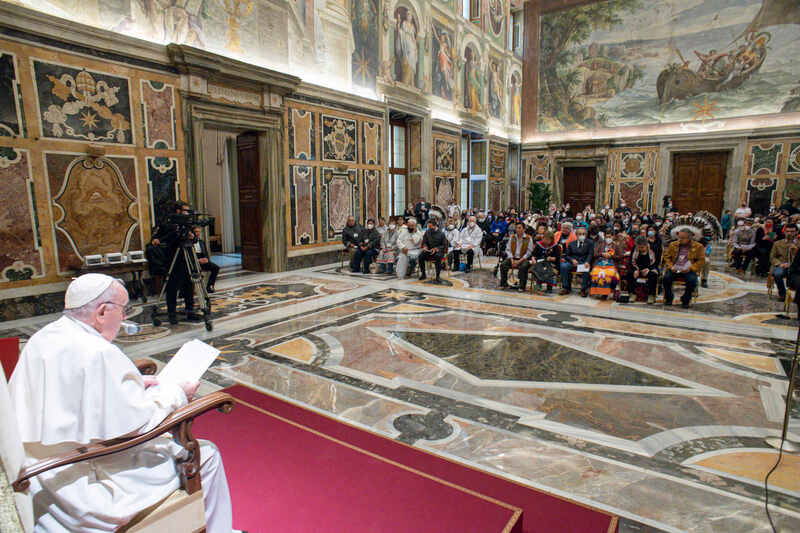
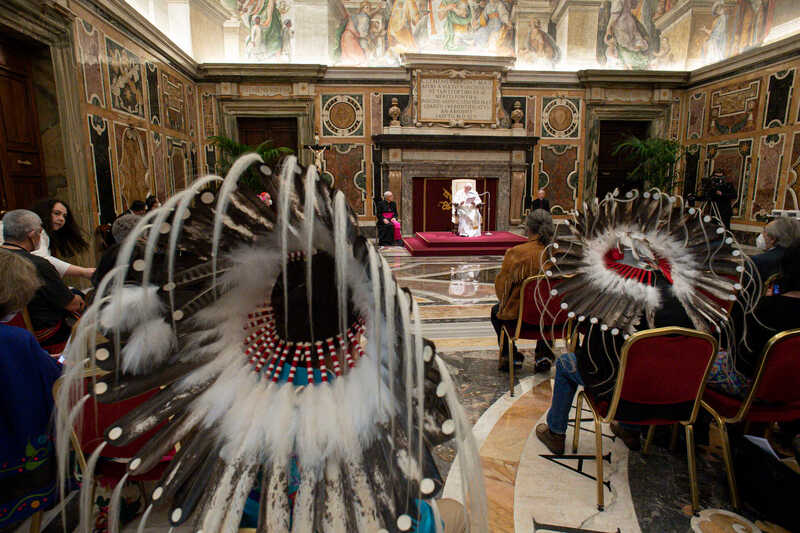
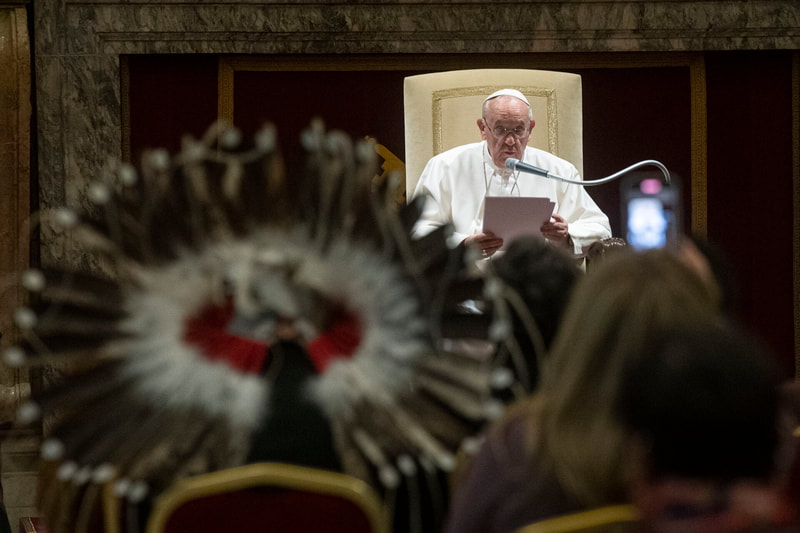
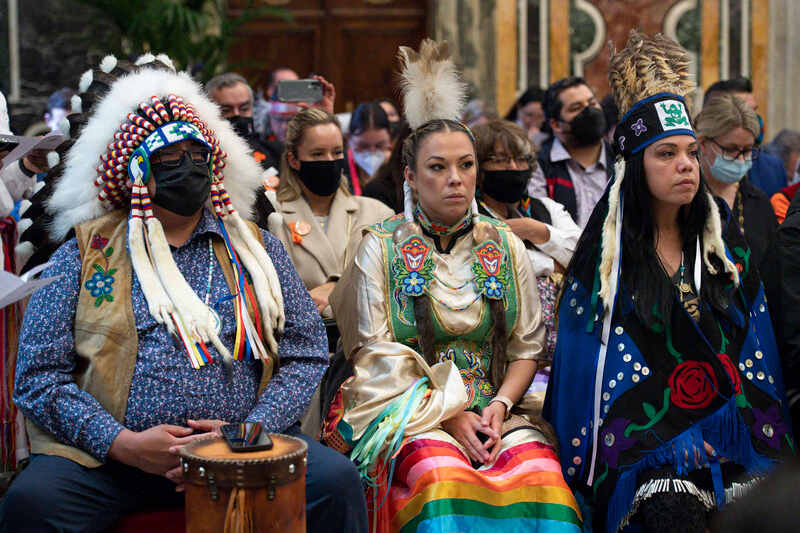
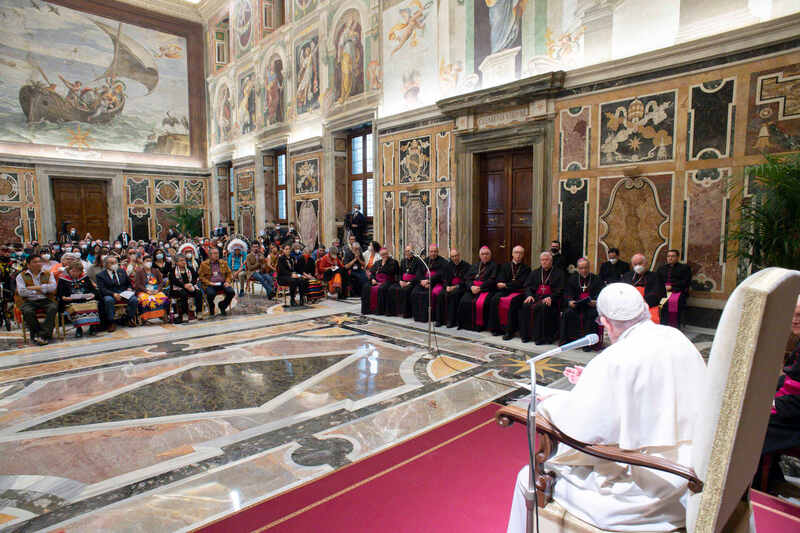
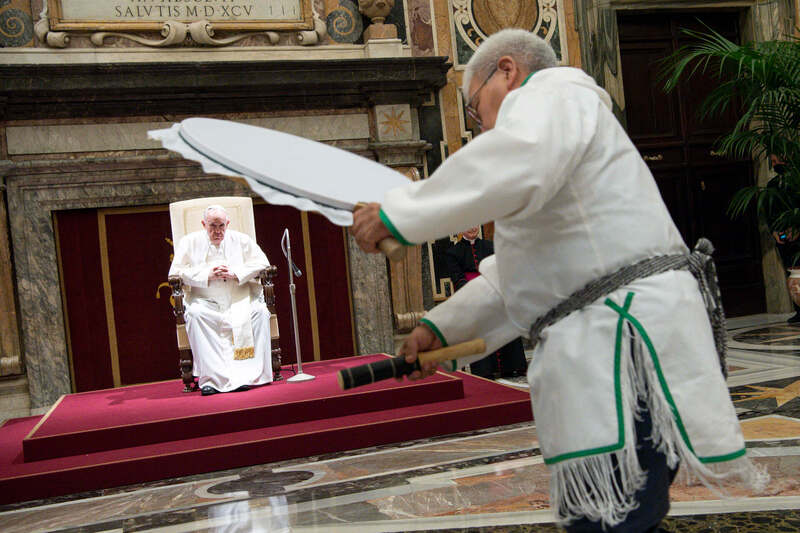
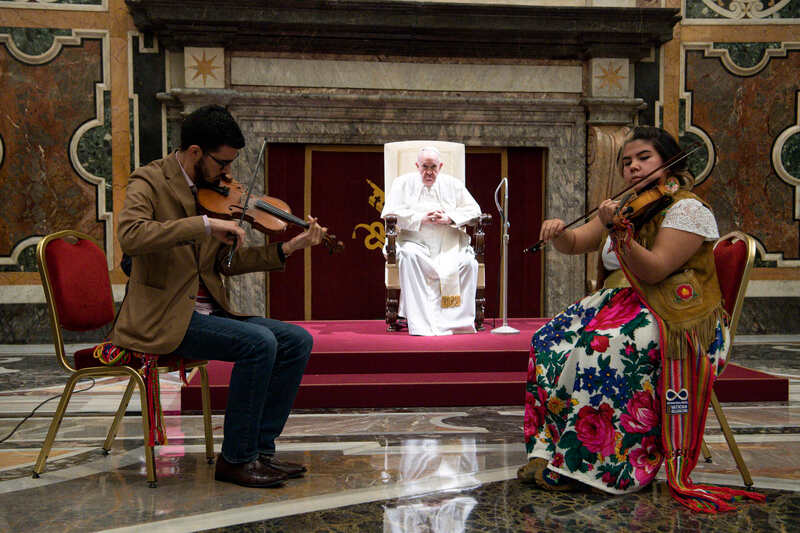
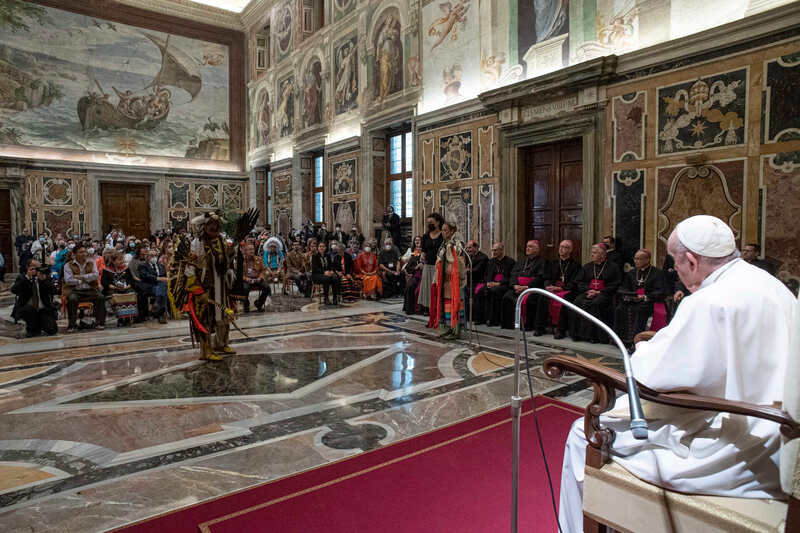
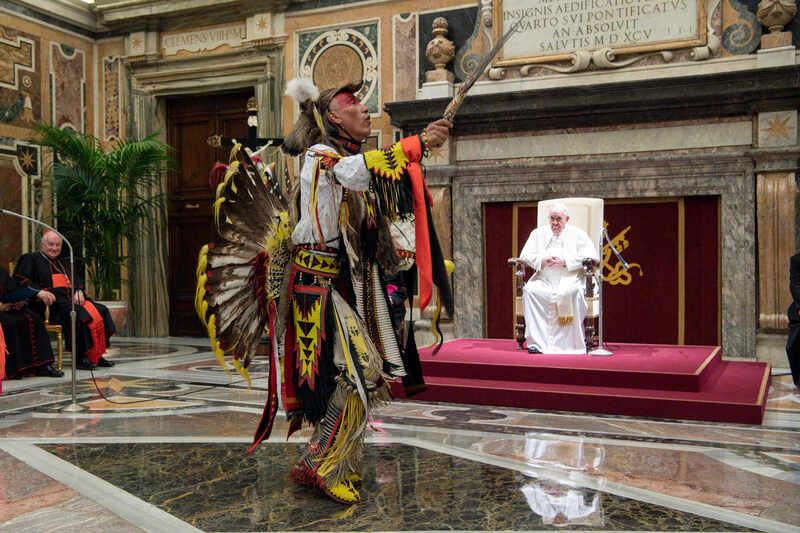
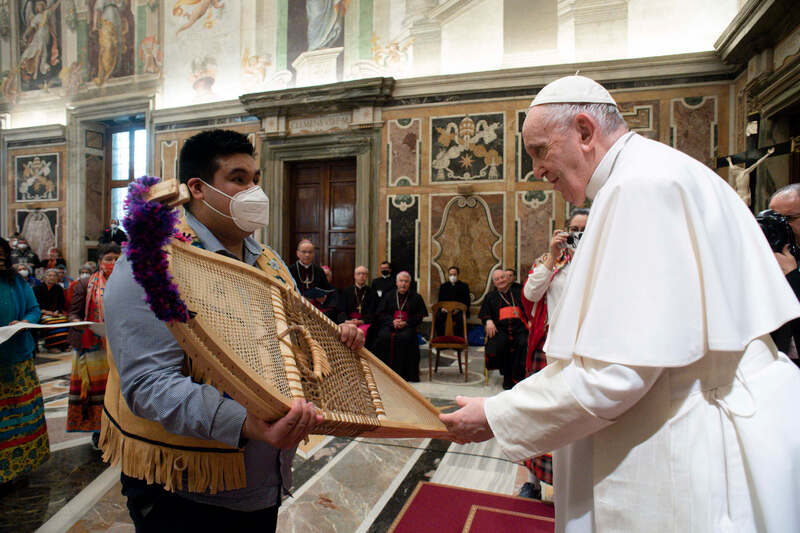
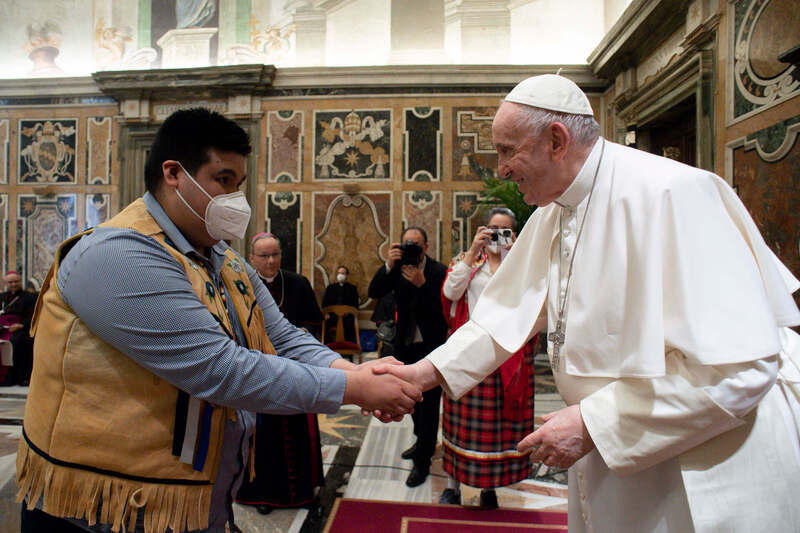
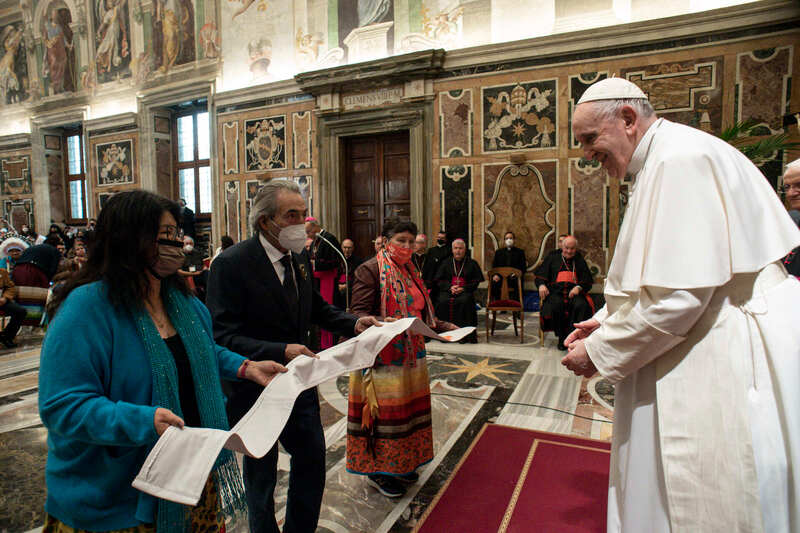
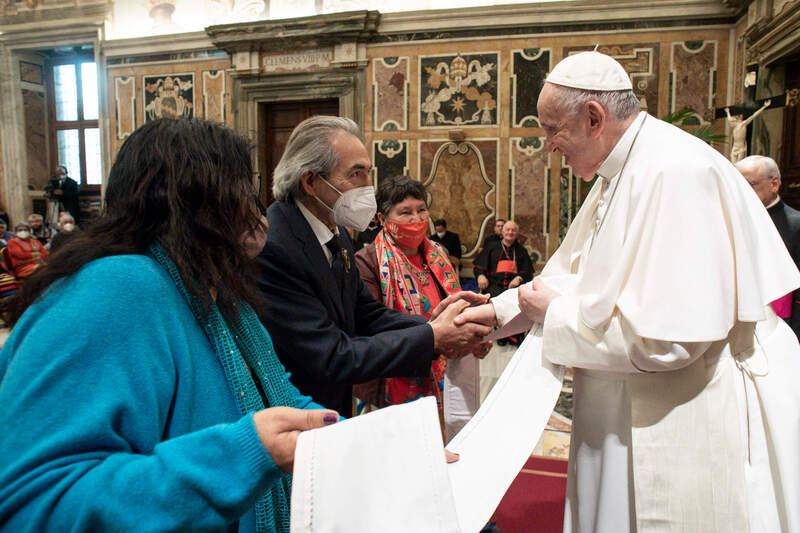
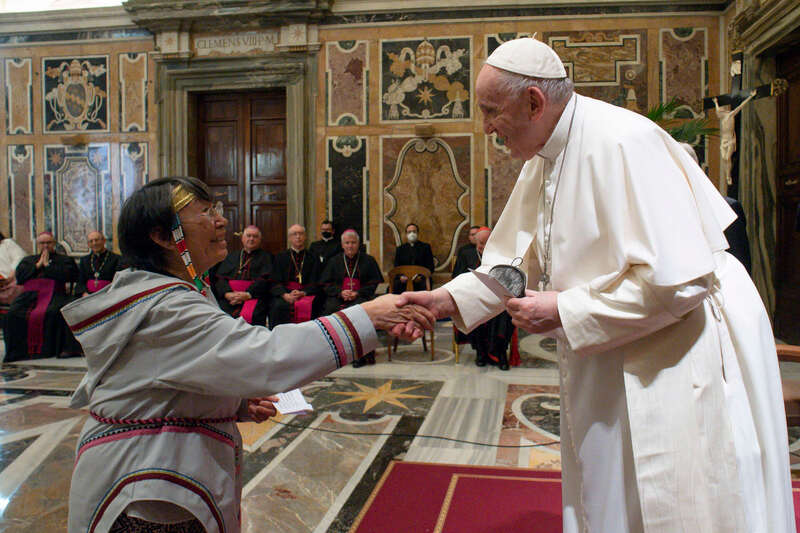
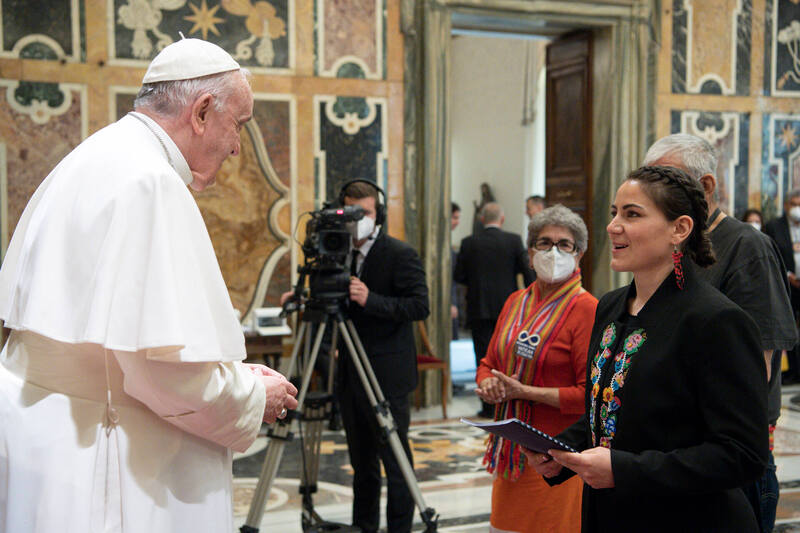
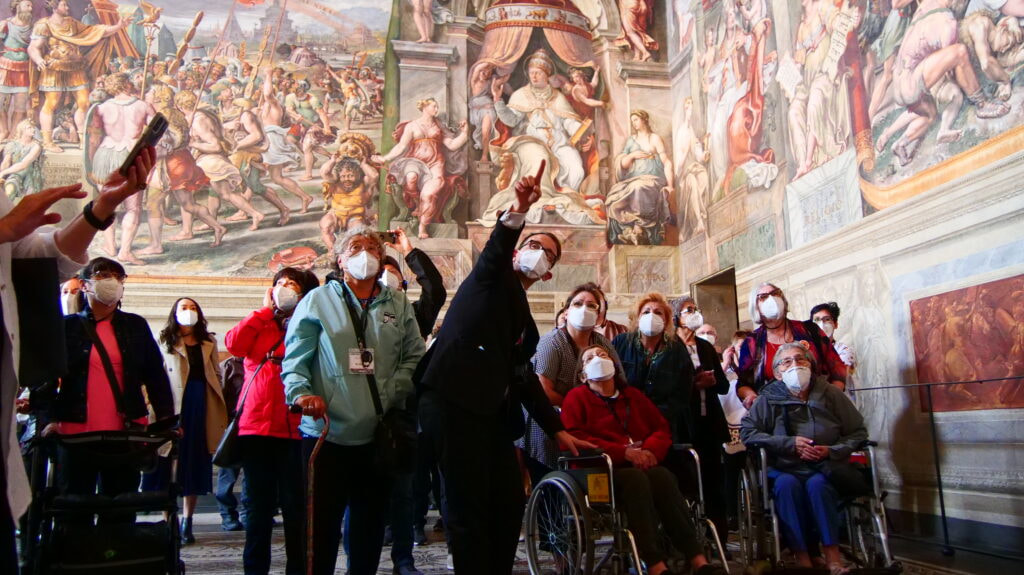
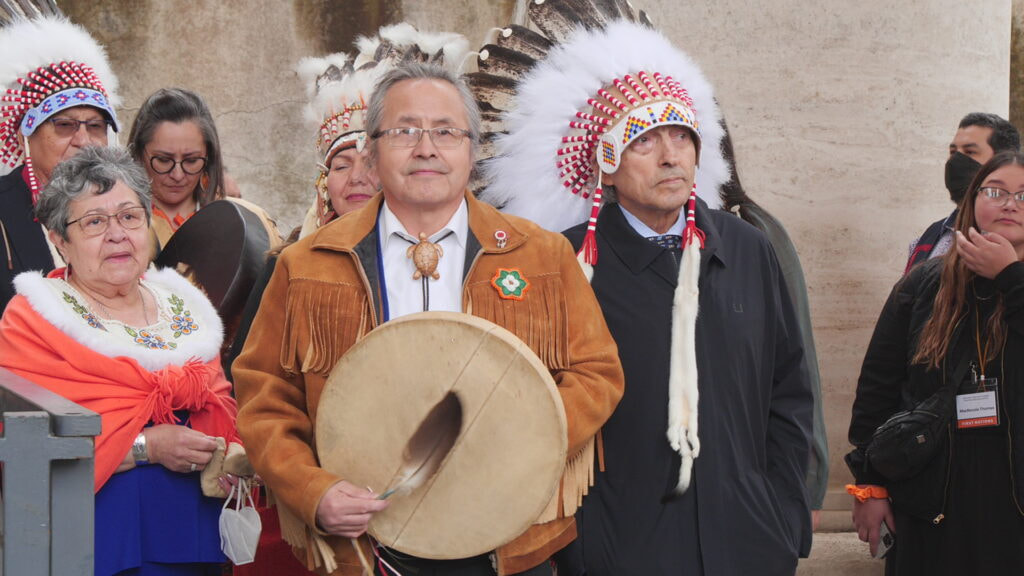
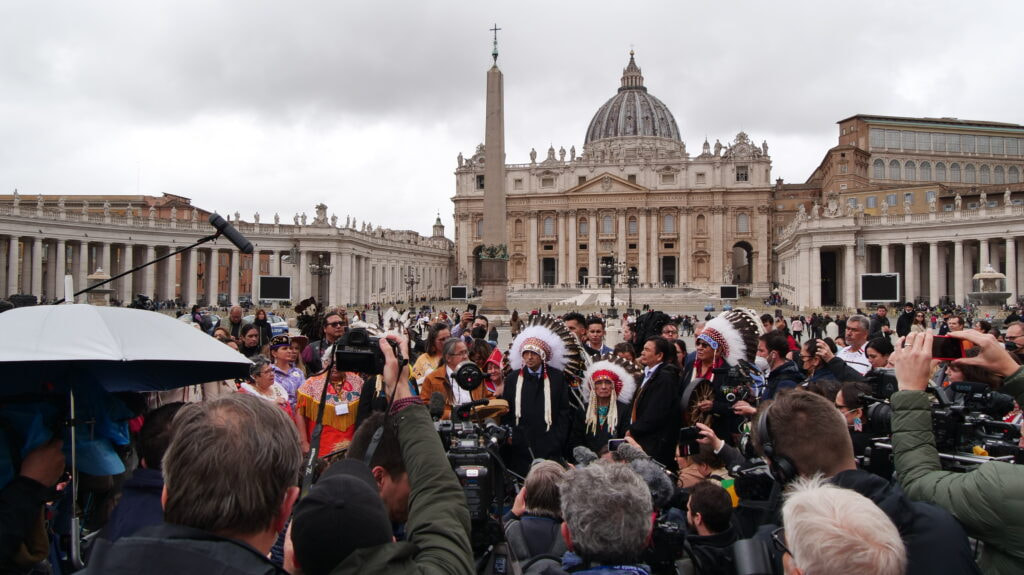
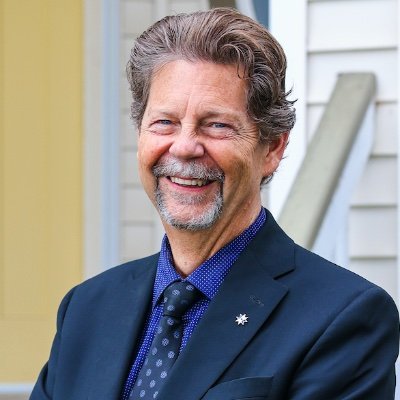
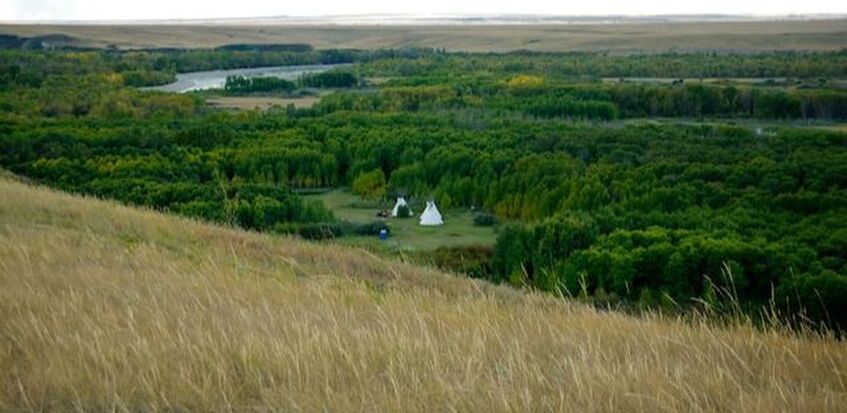
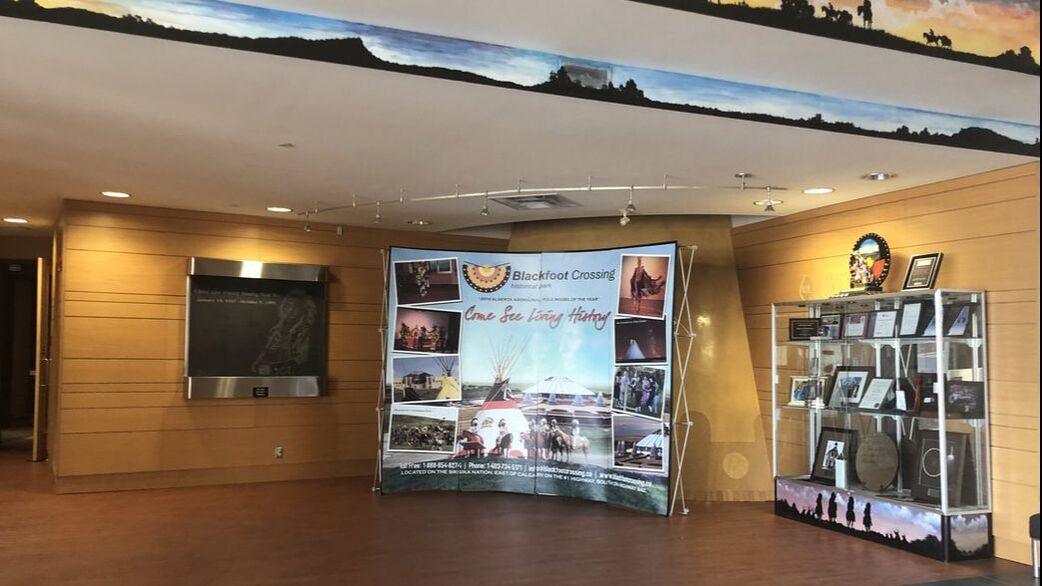
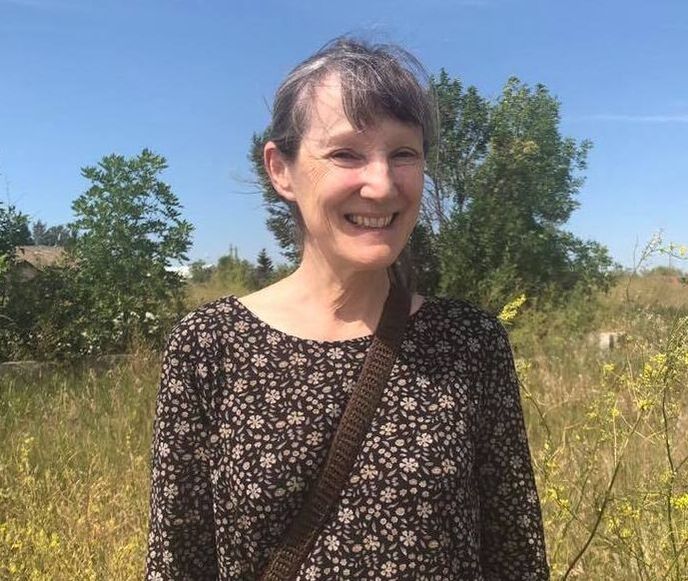
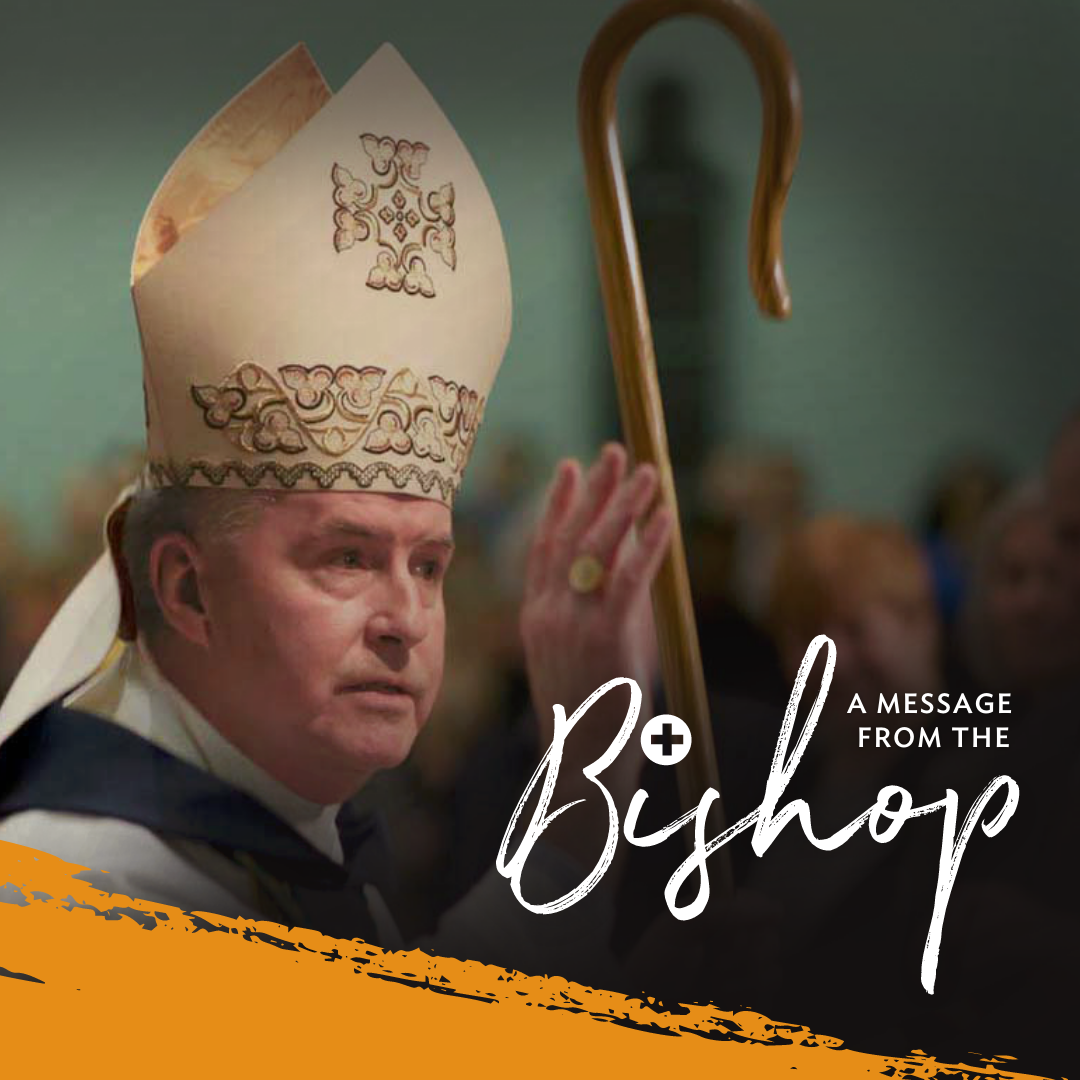


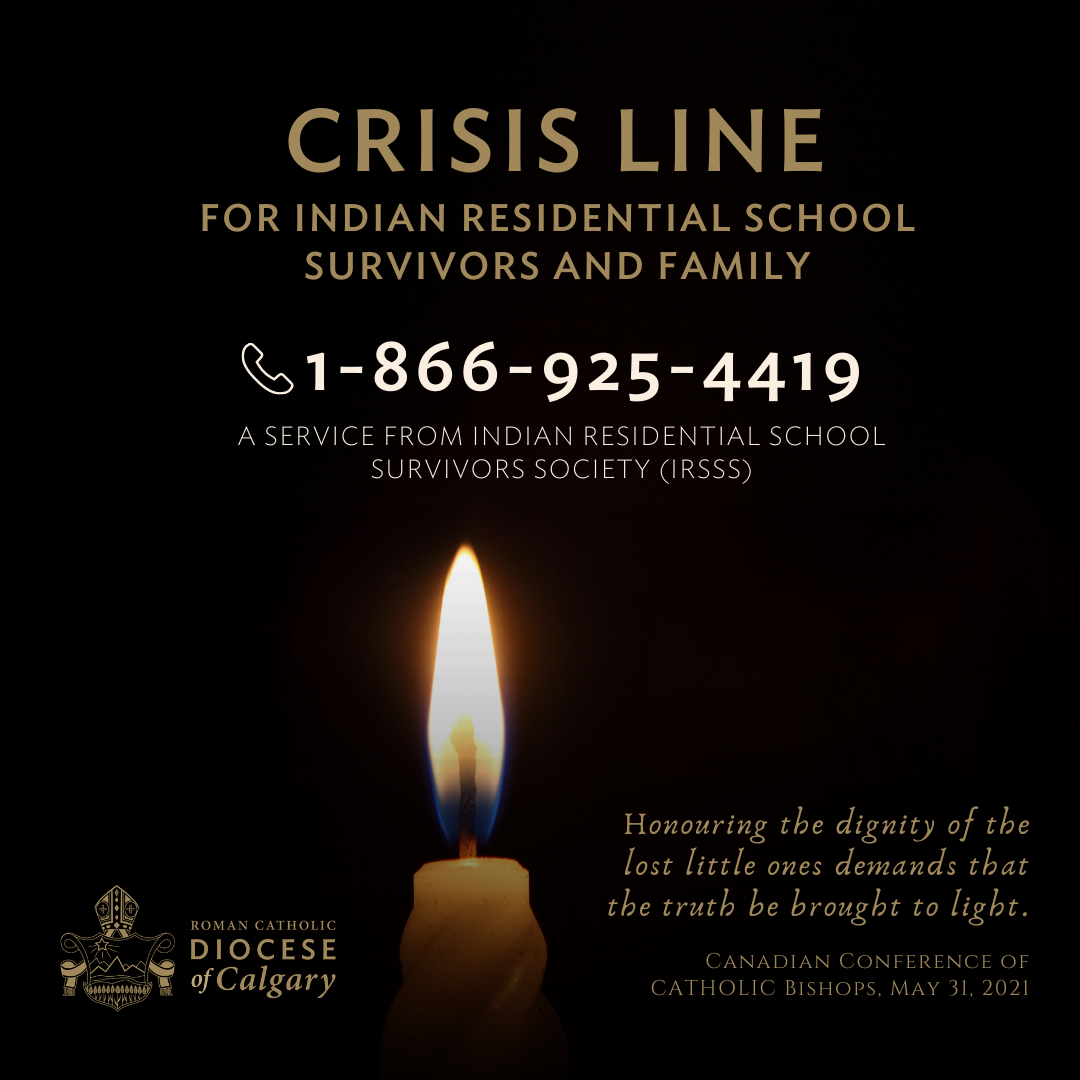
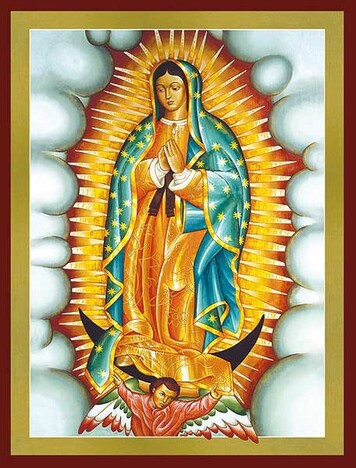
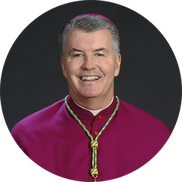
 RSS Feed
RSS Feed